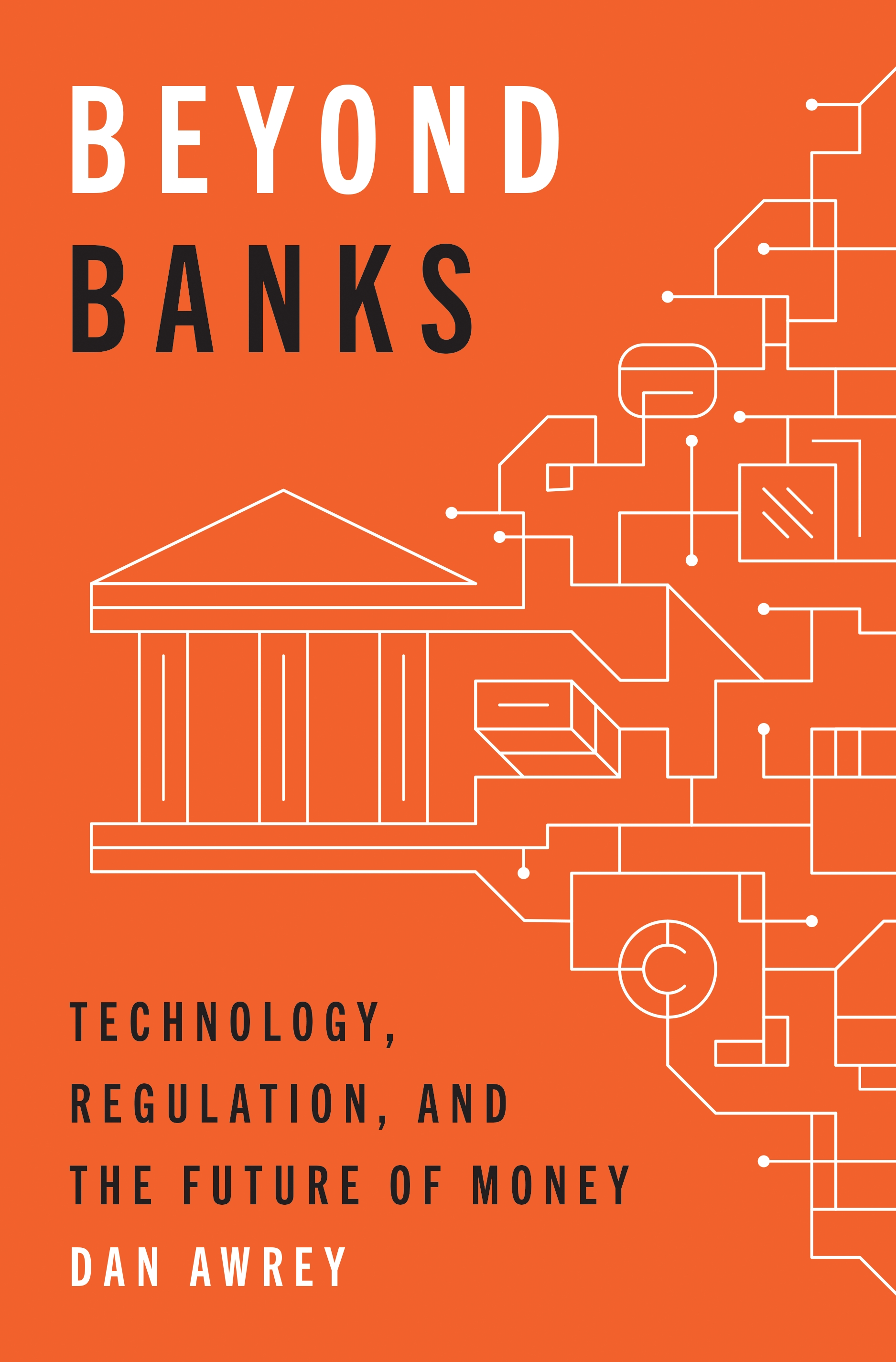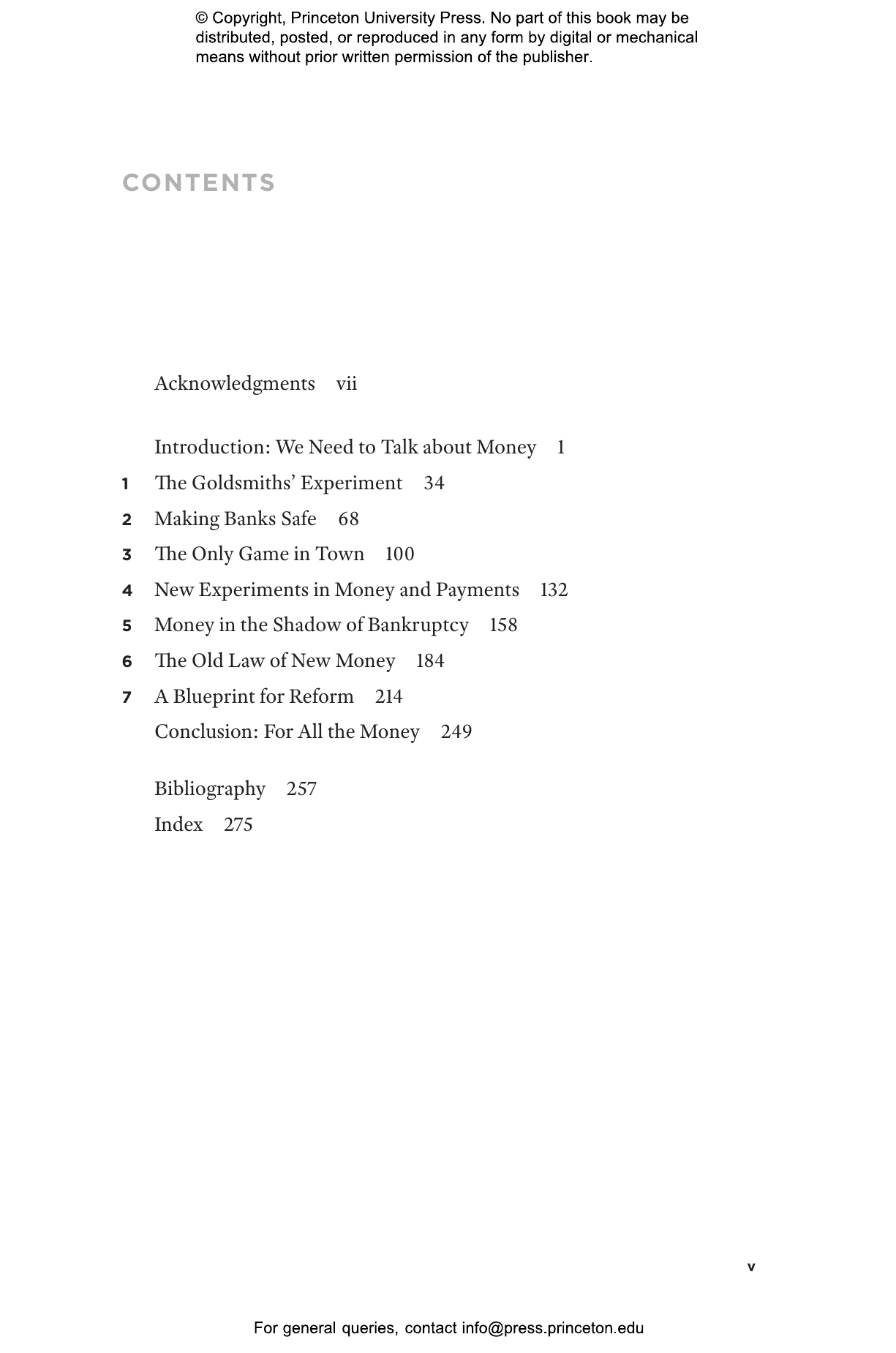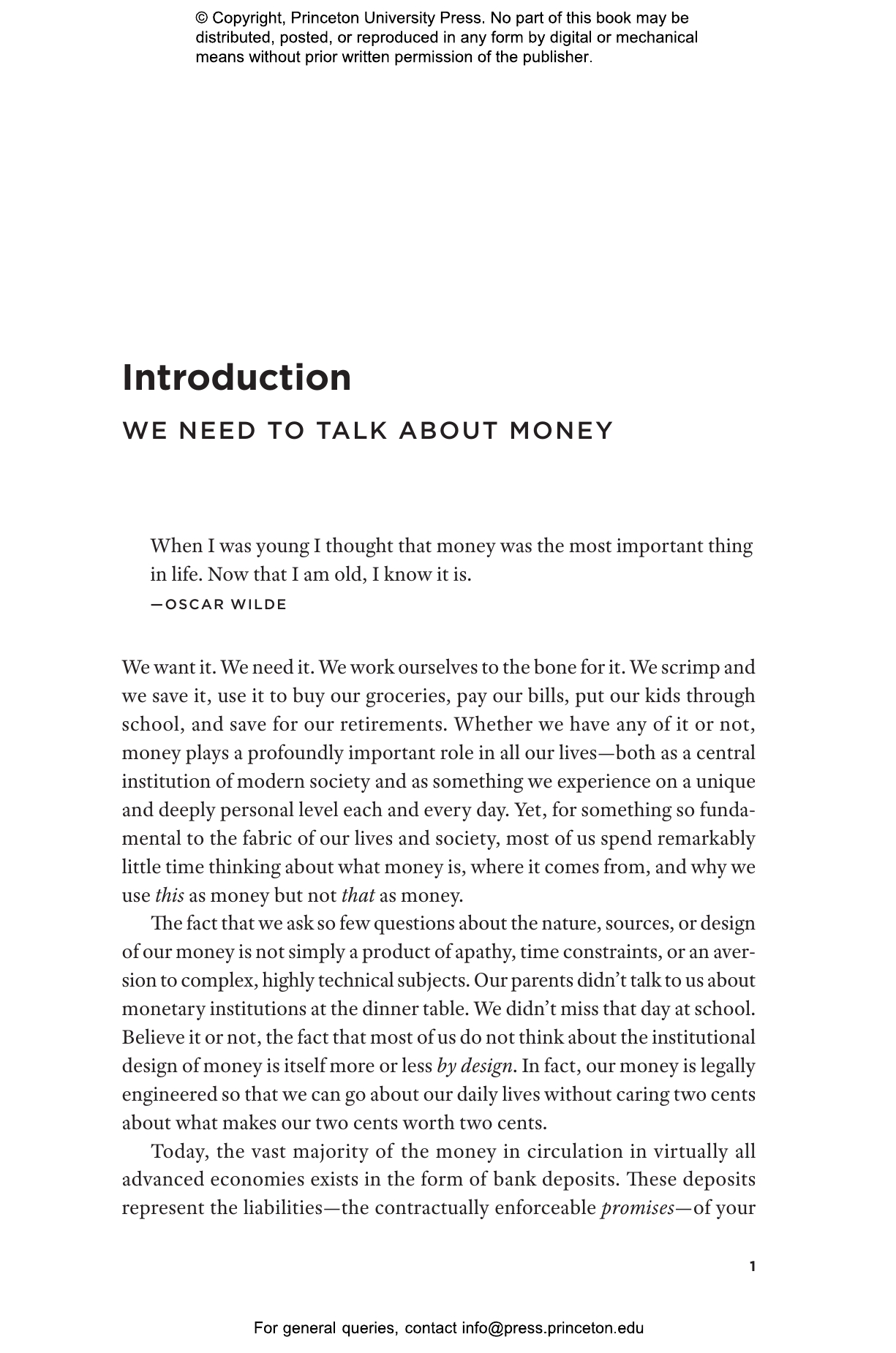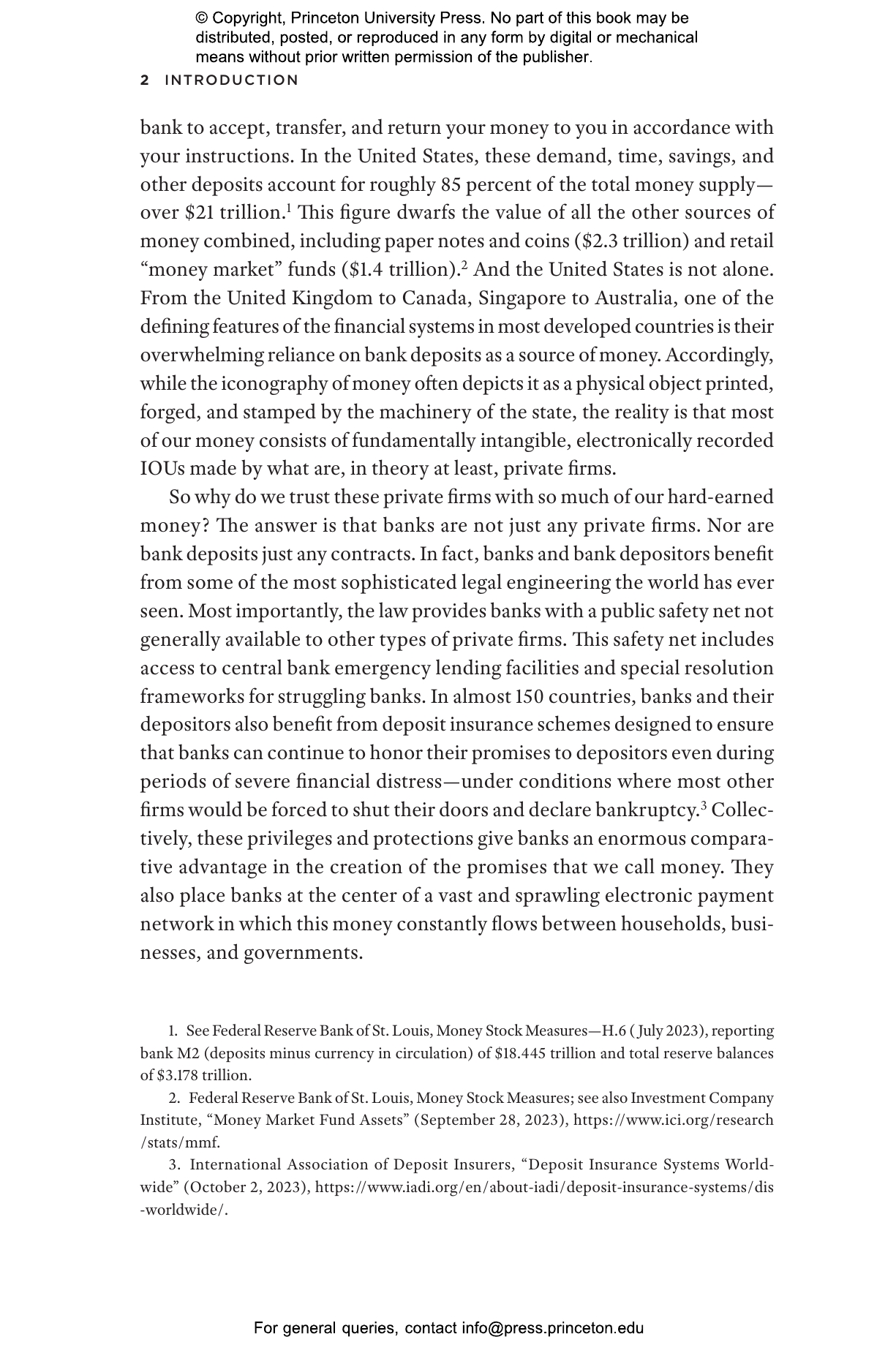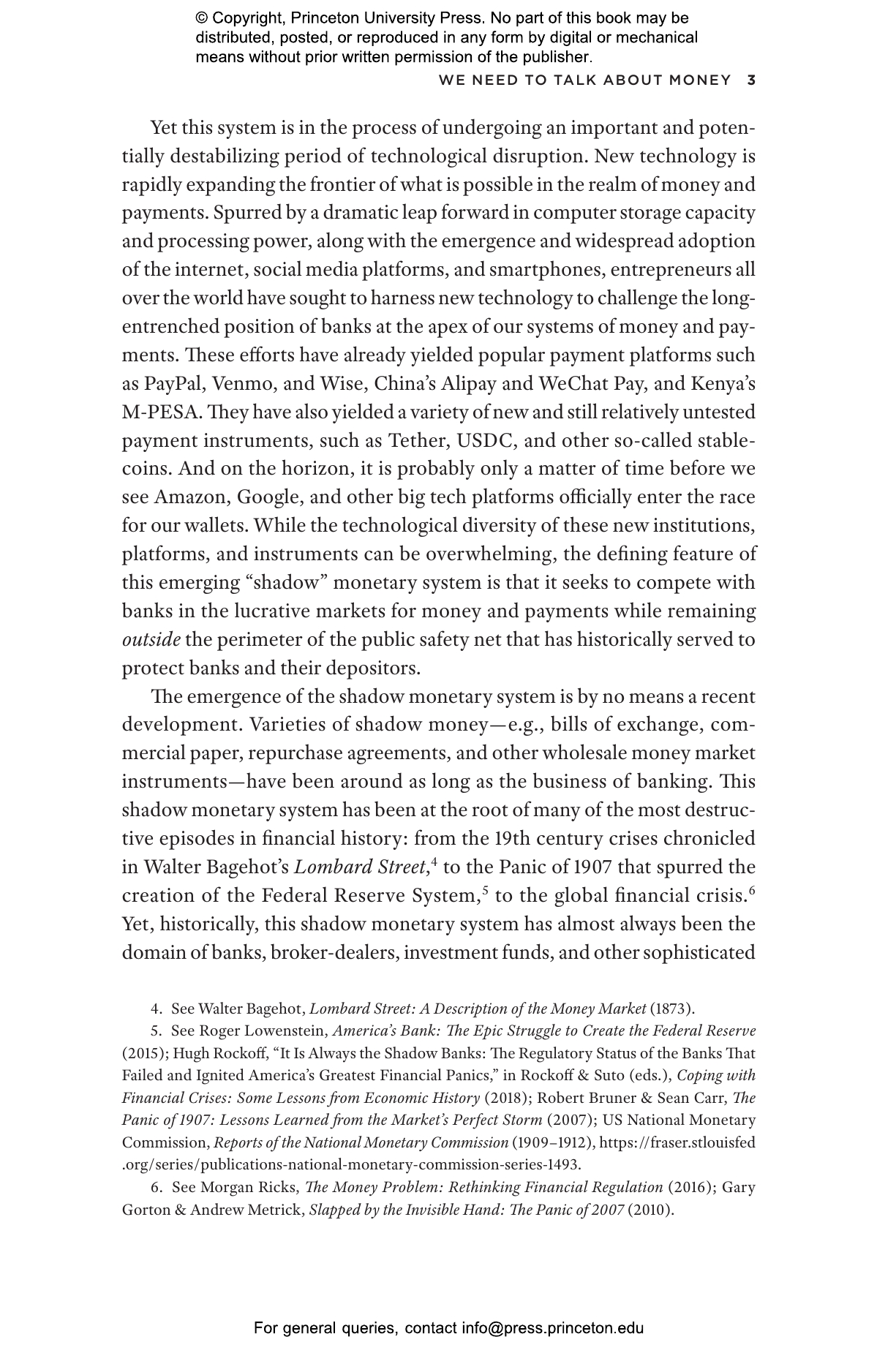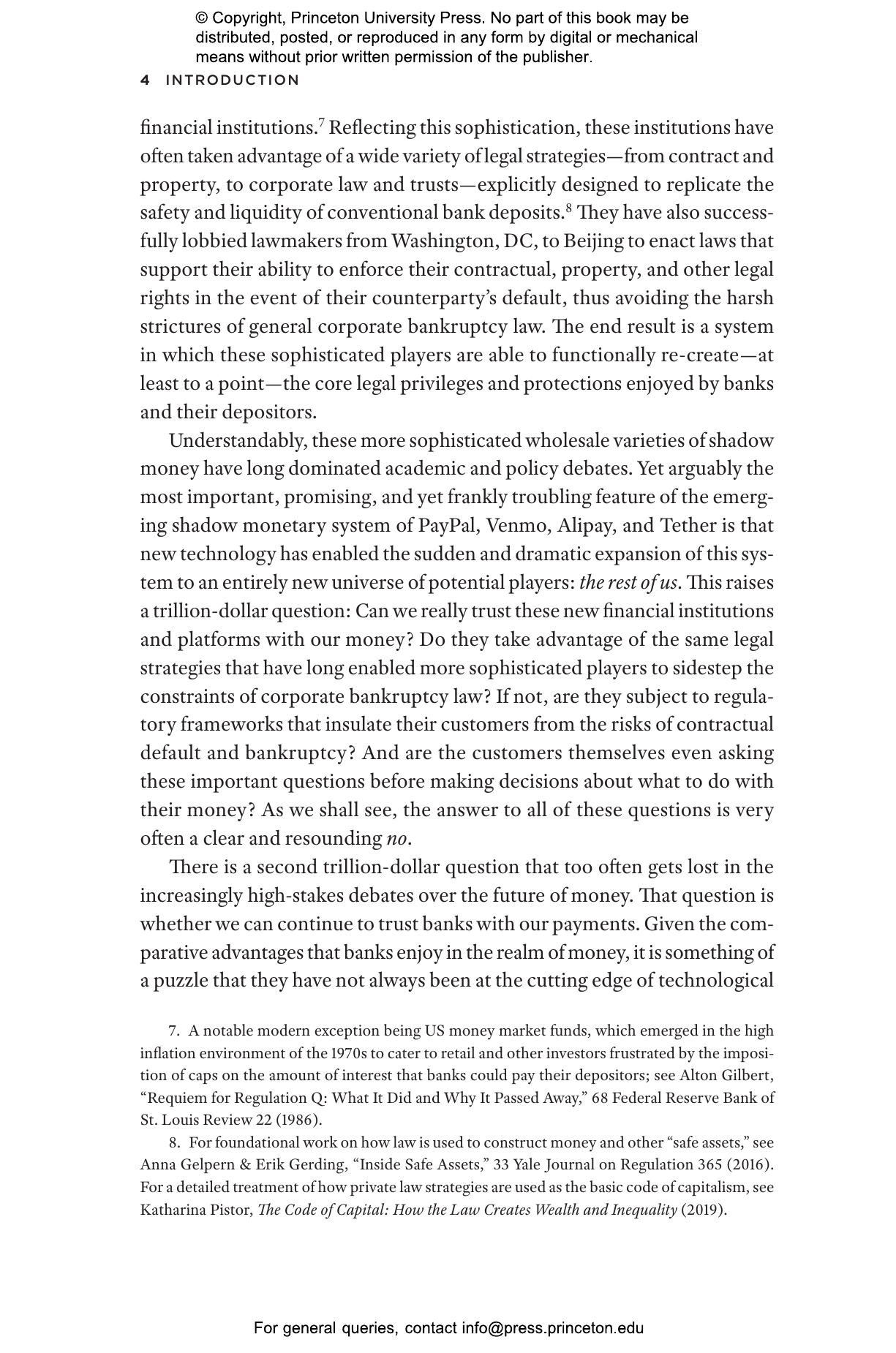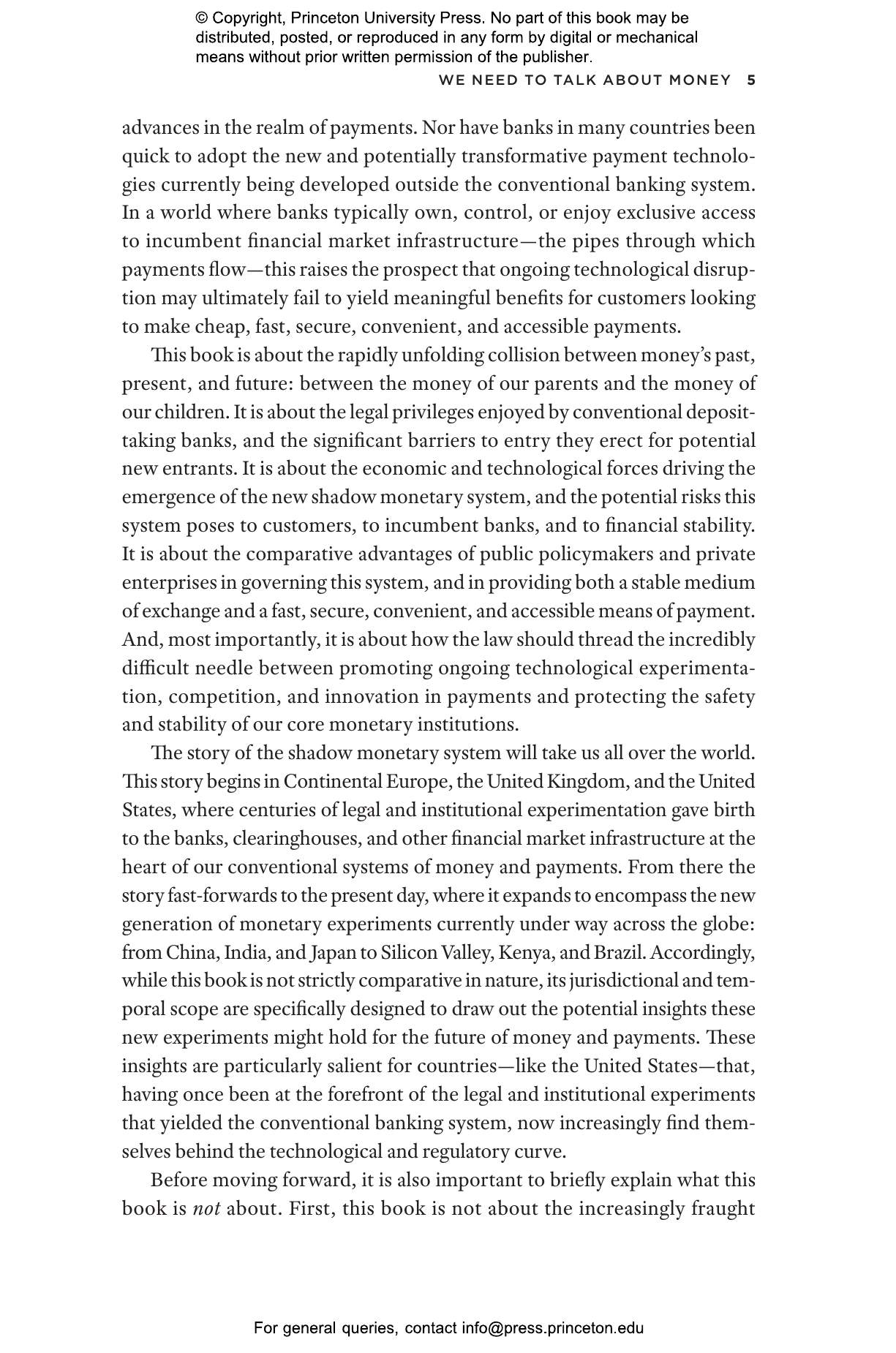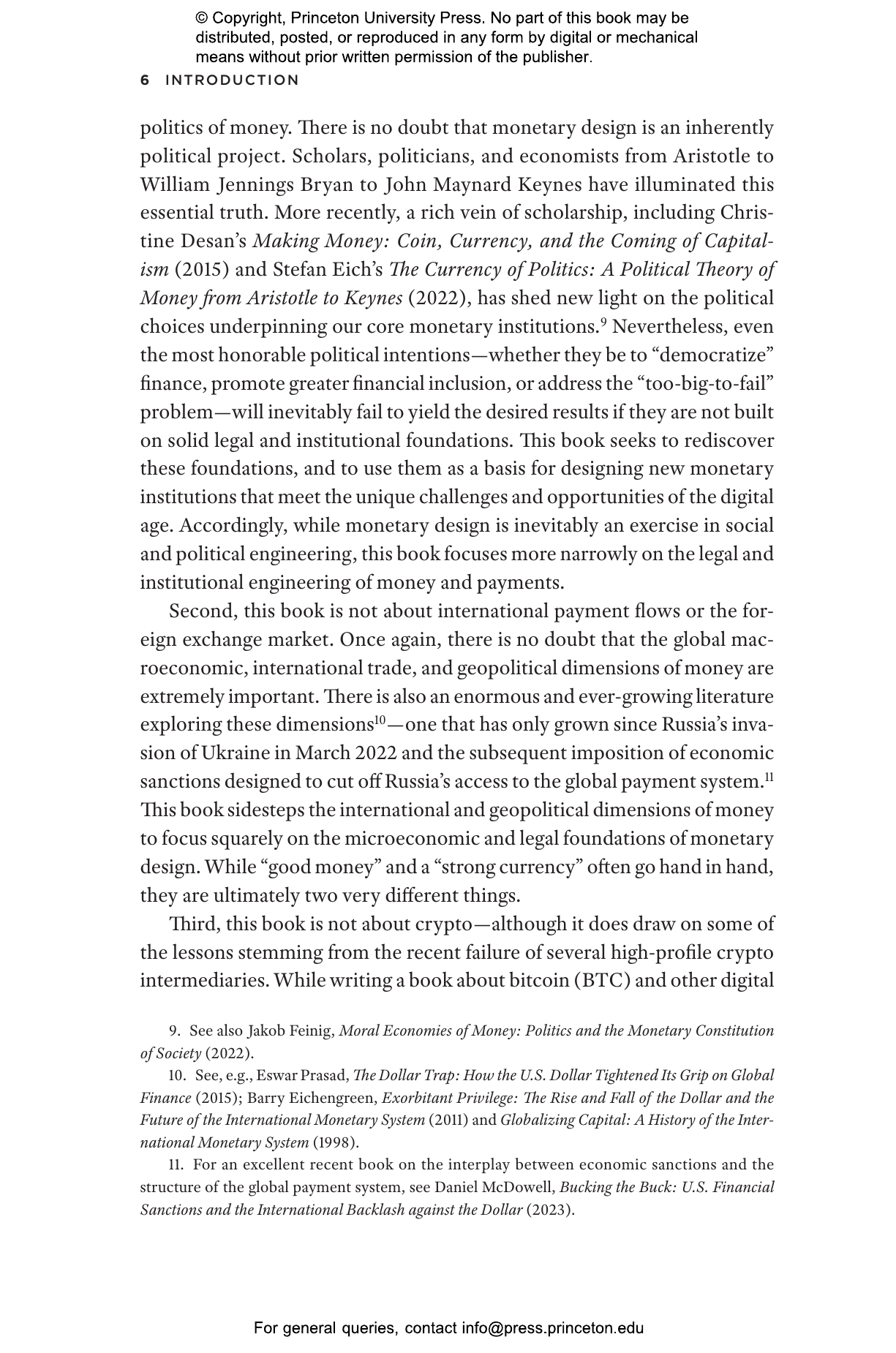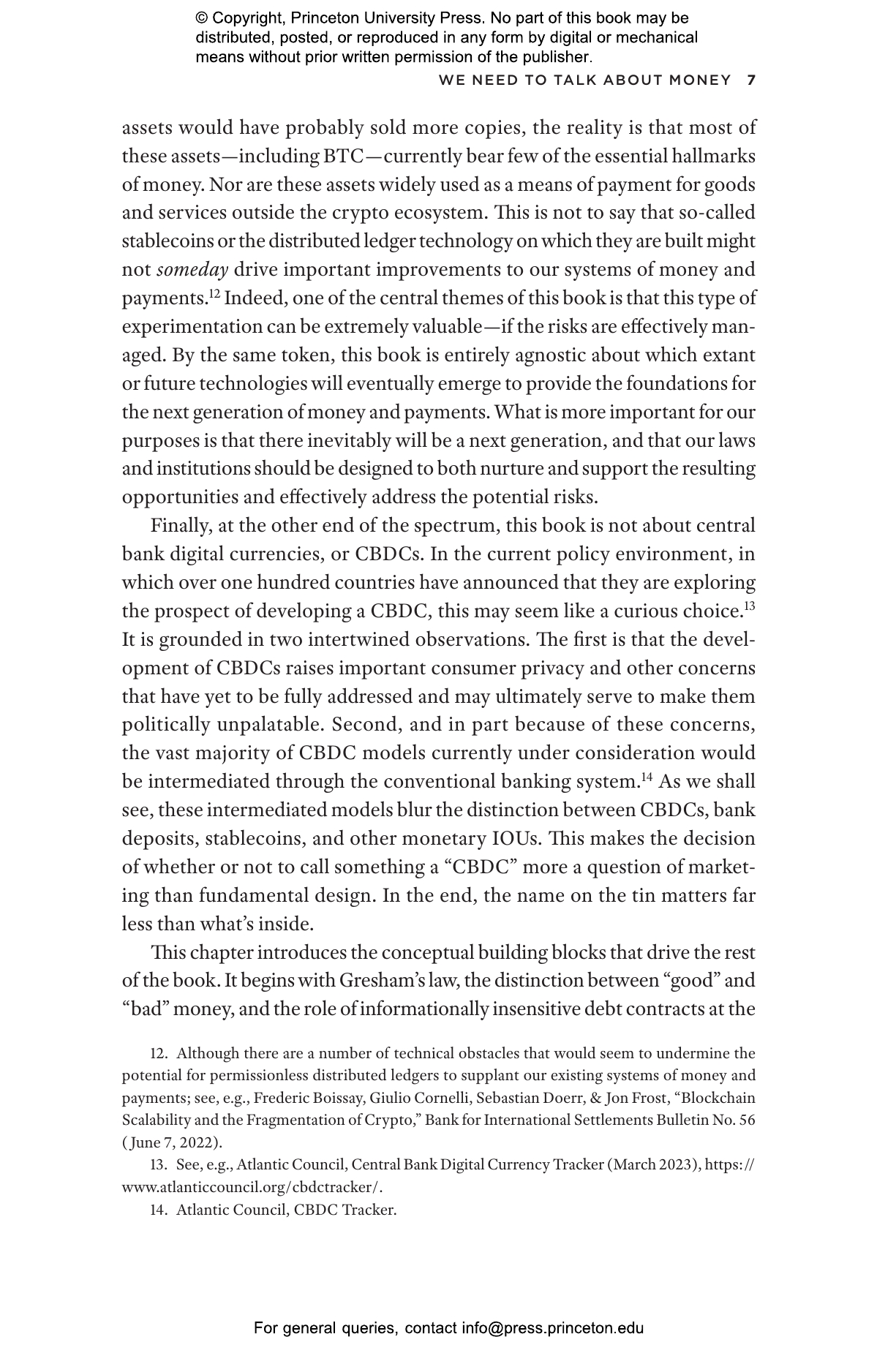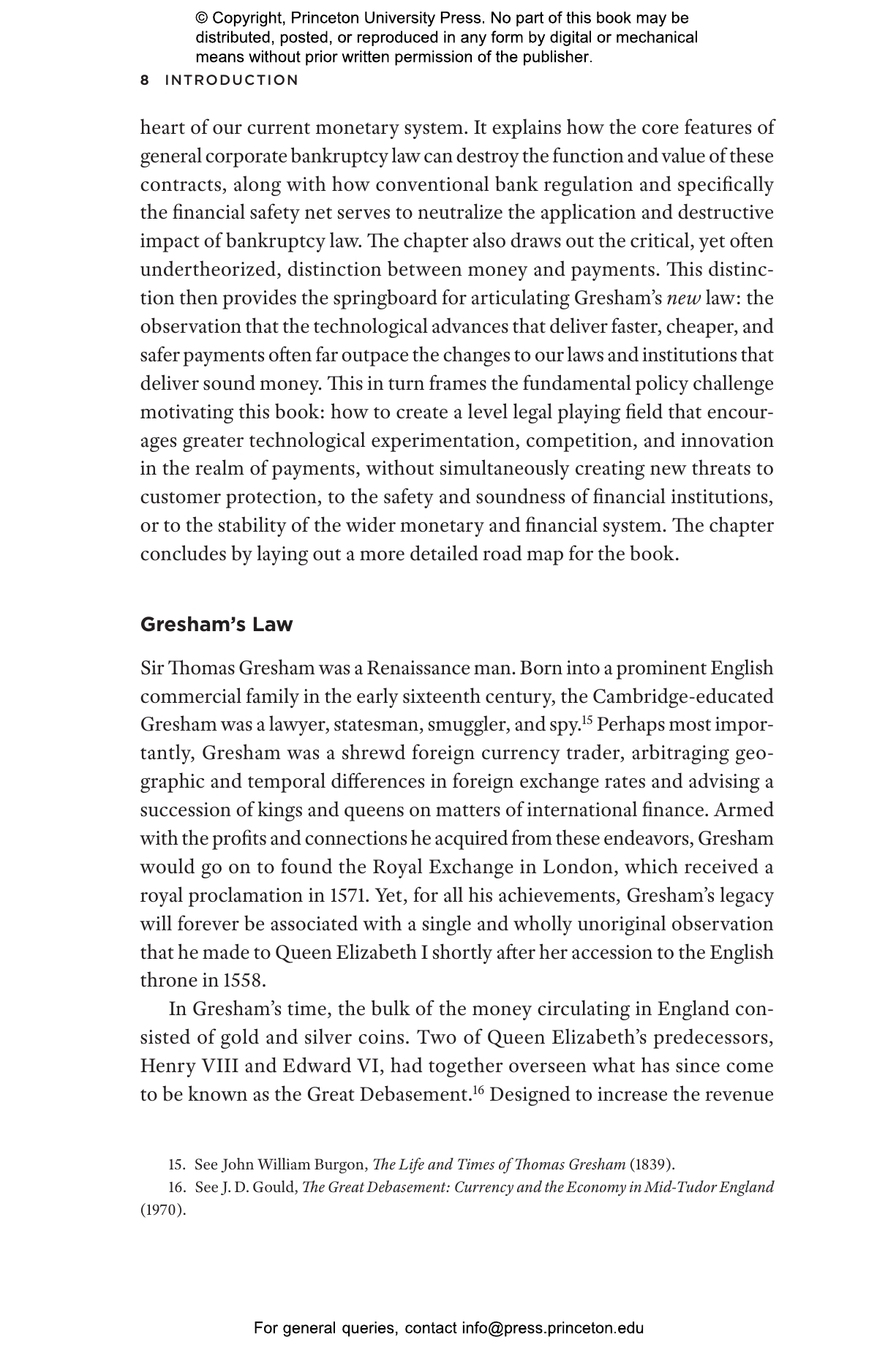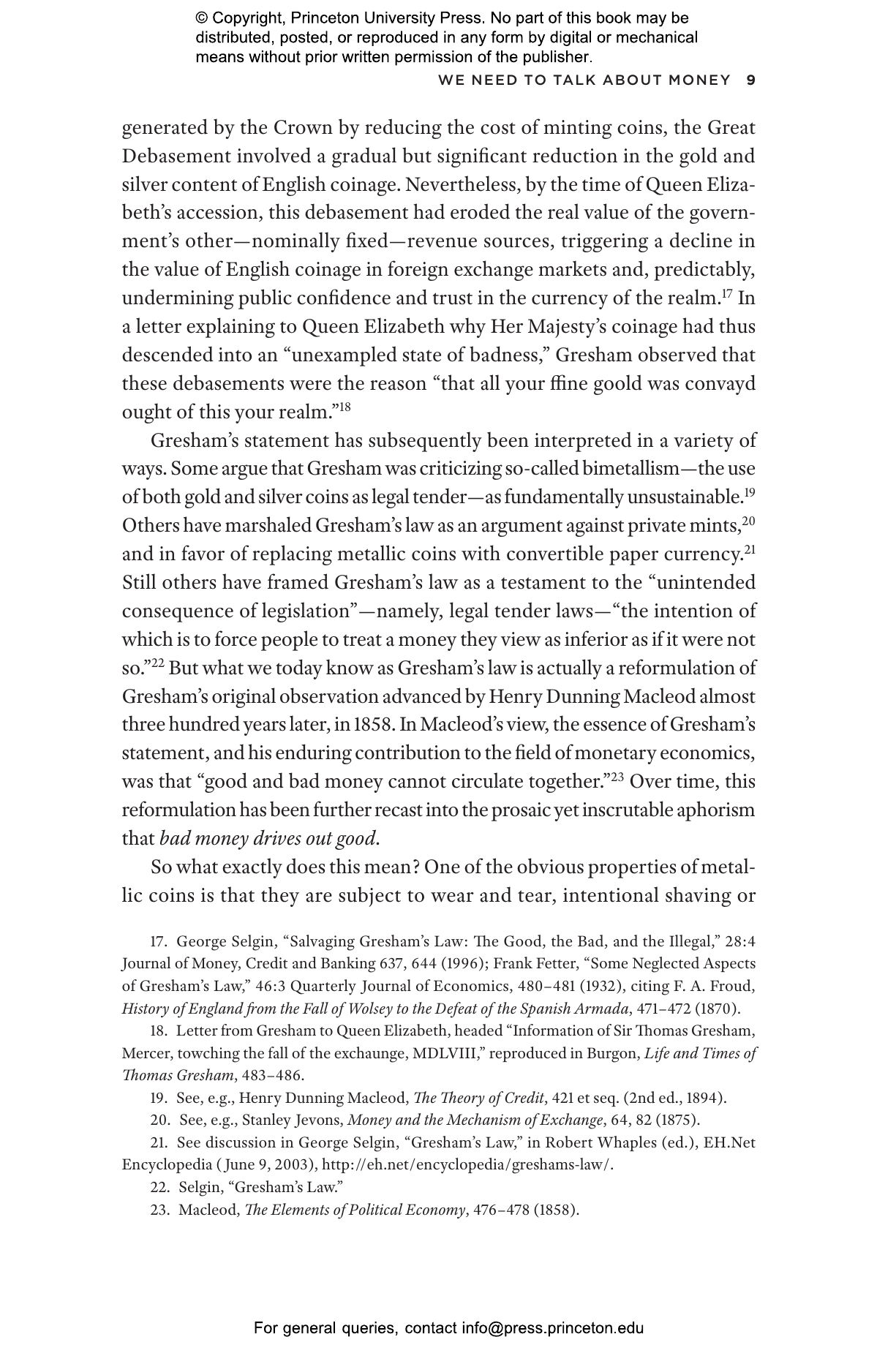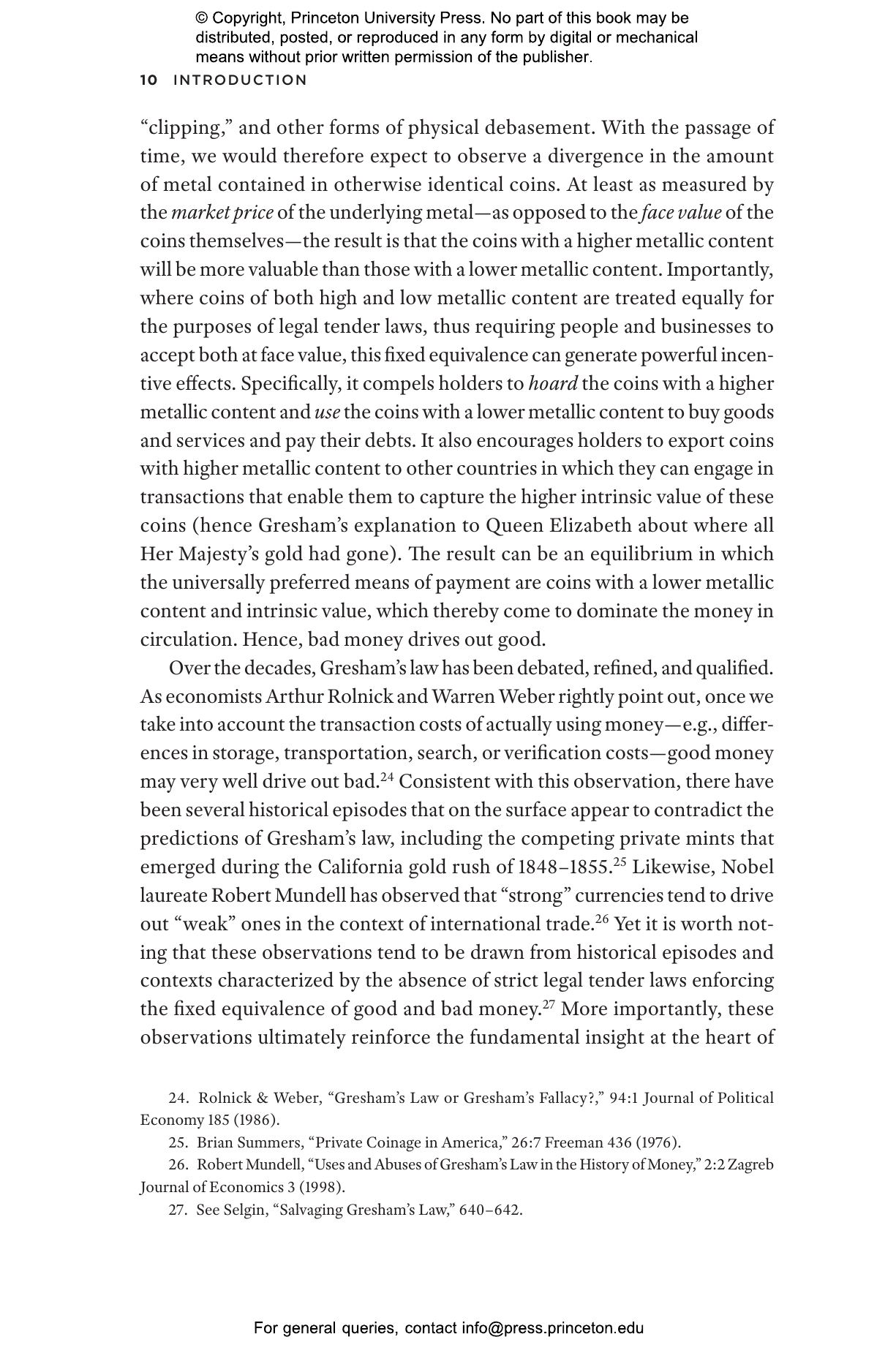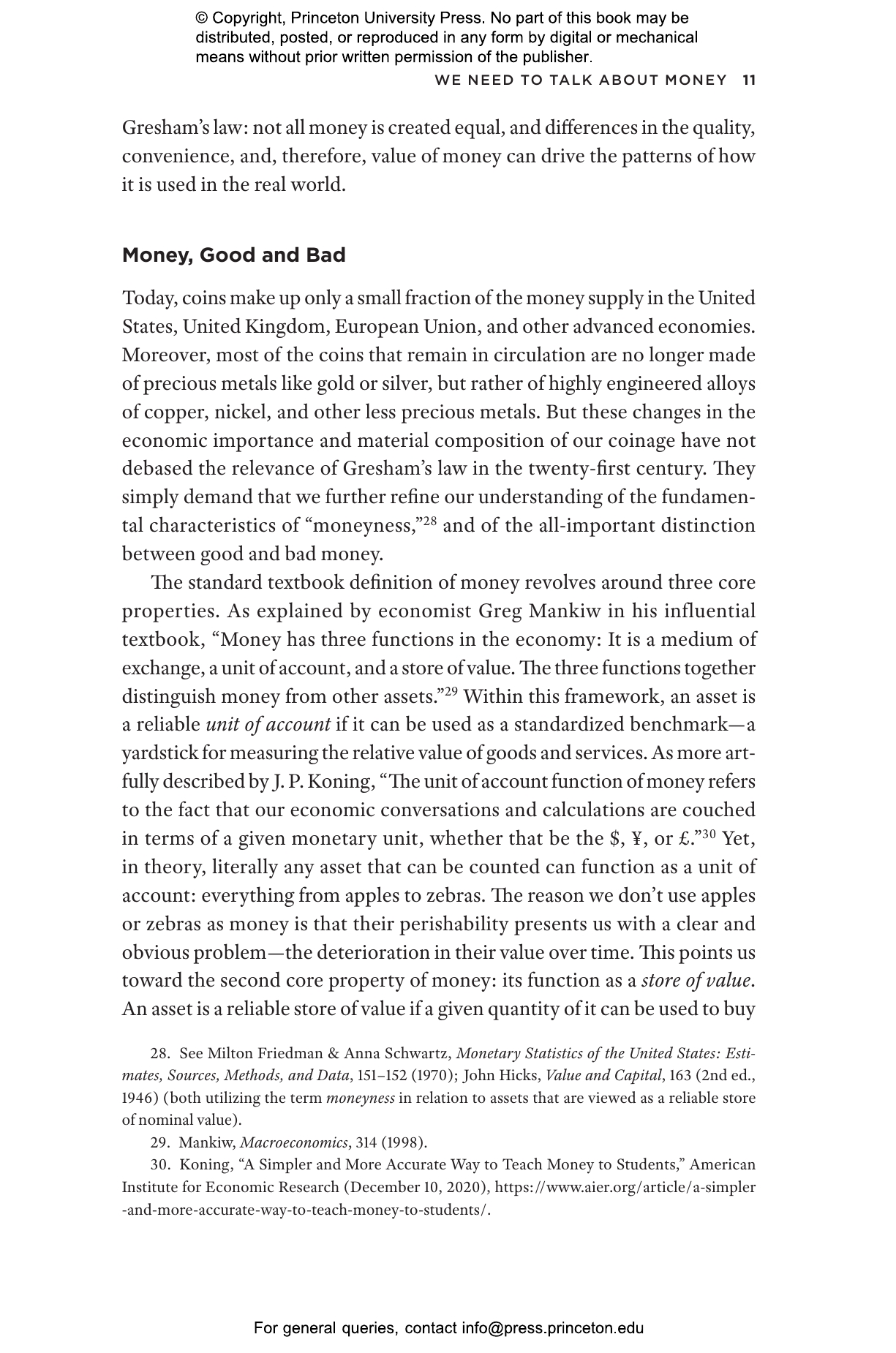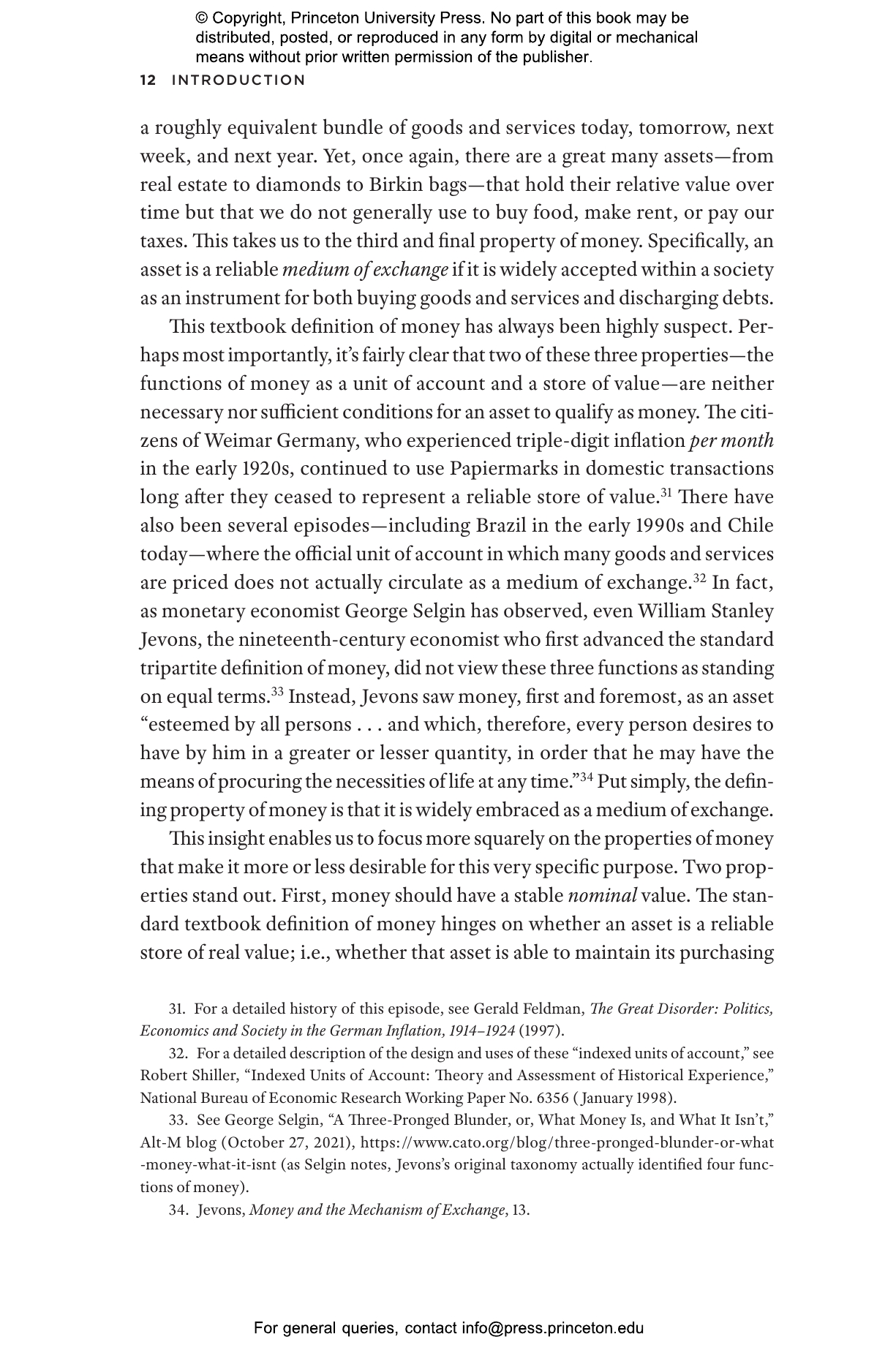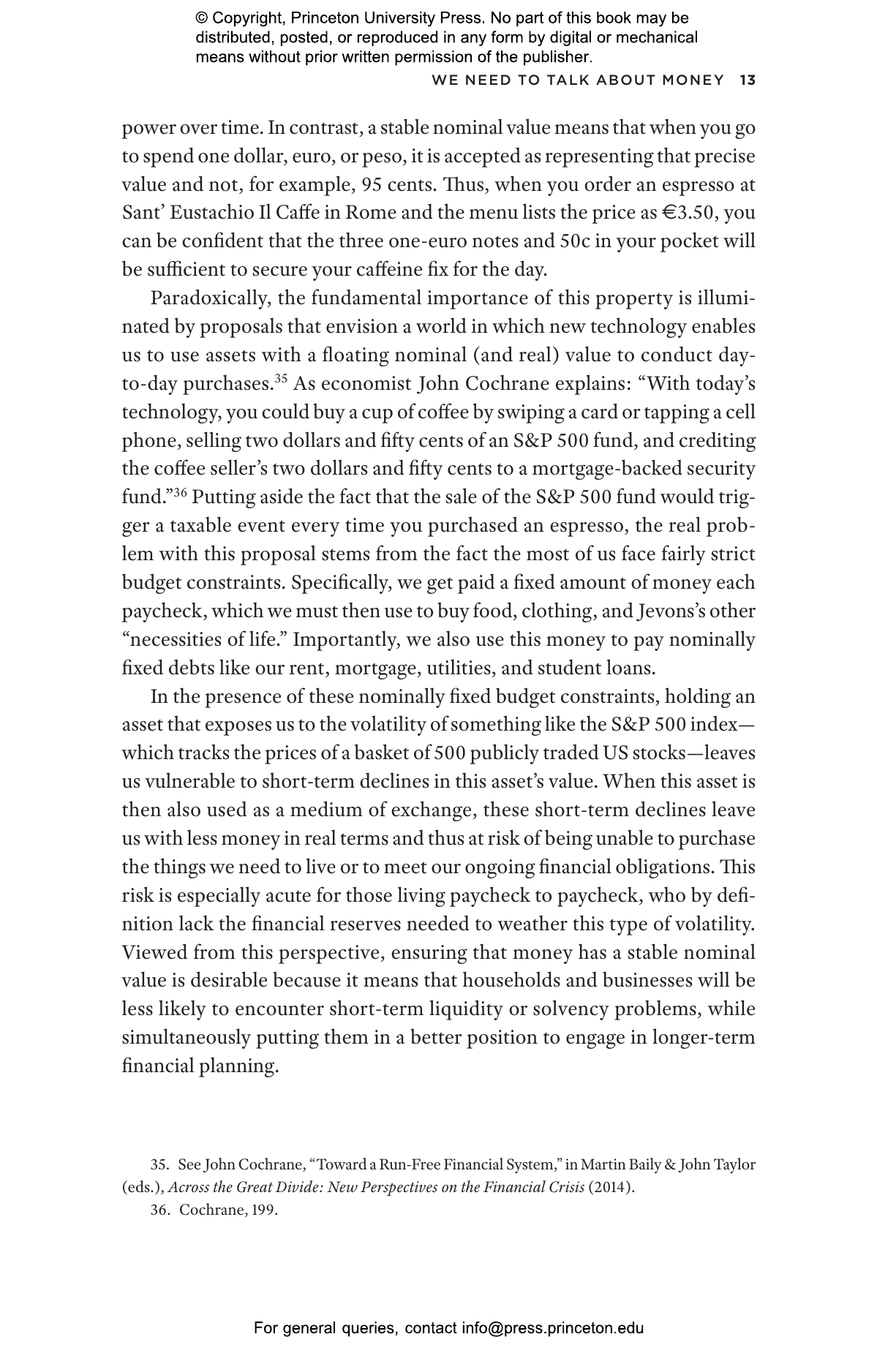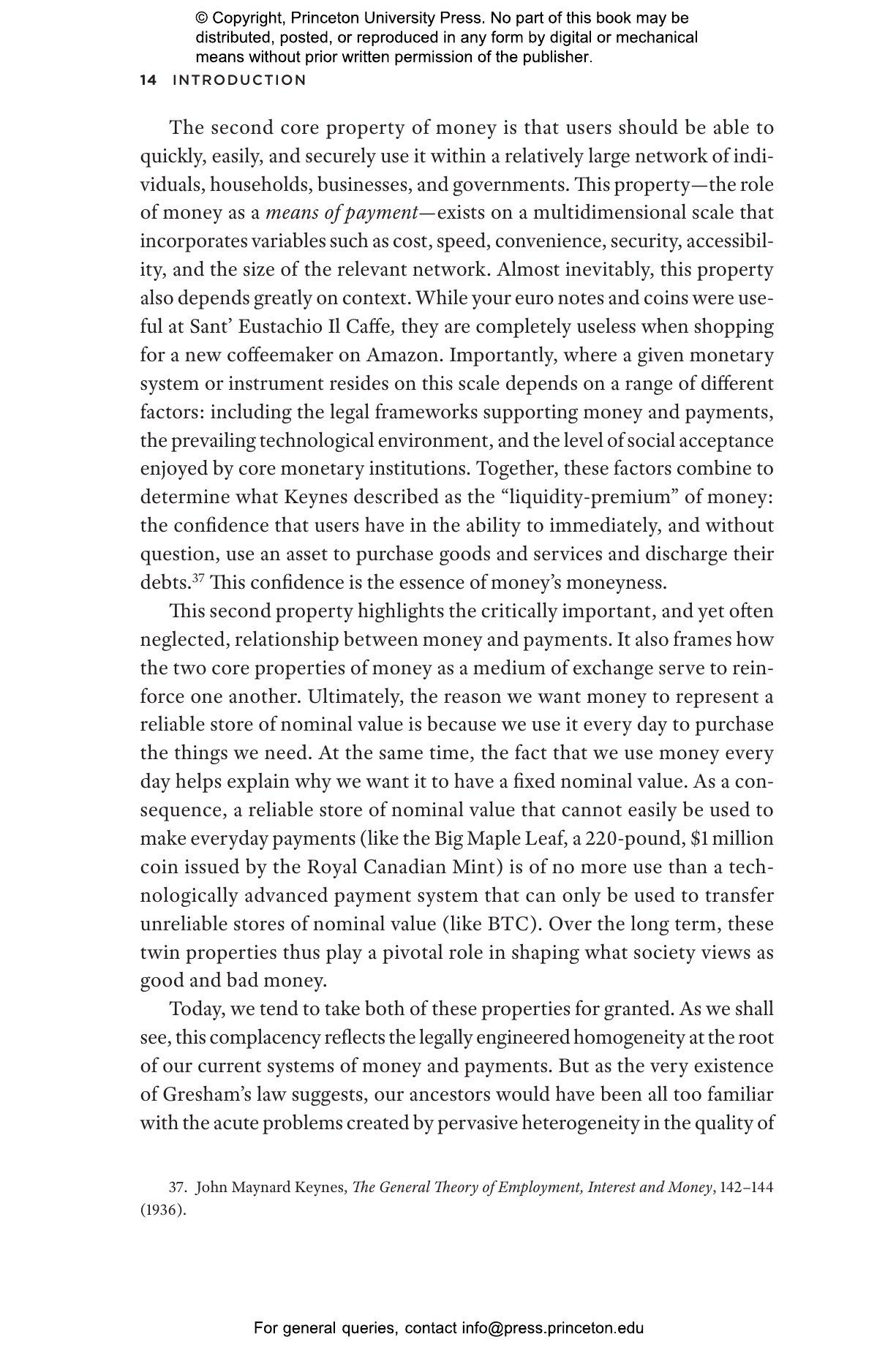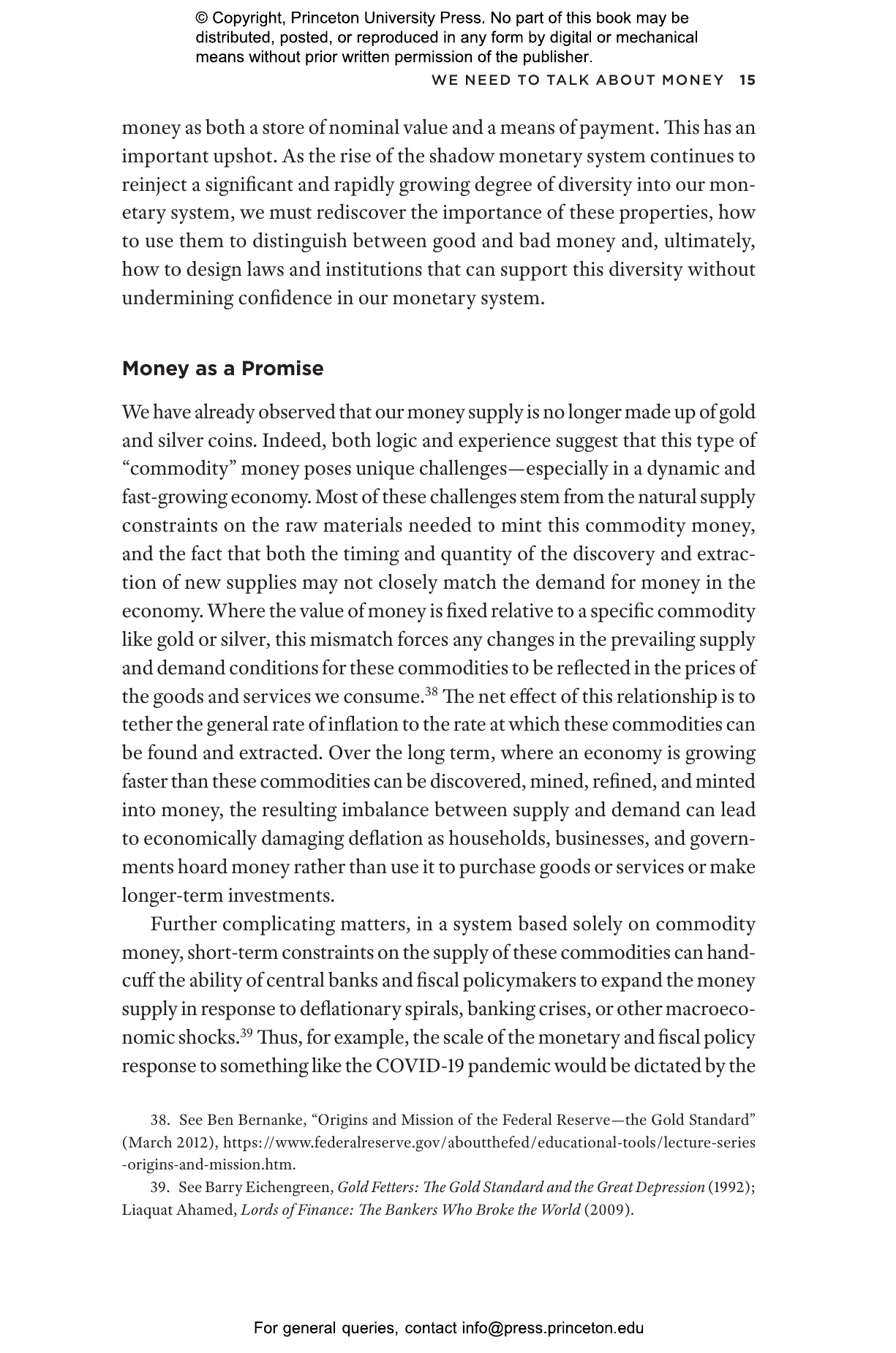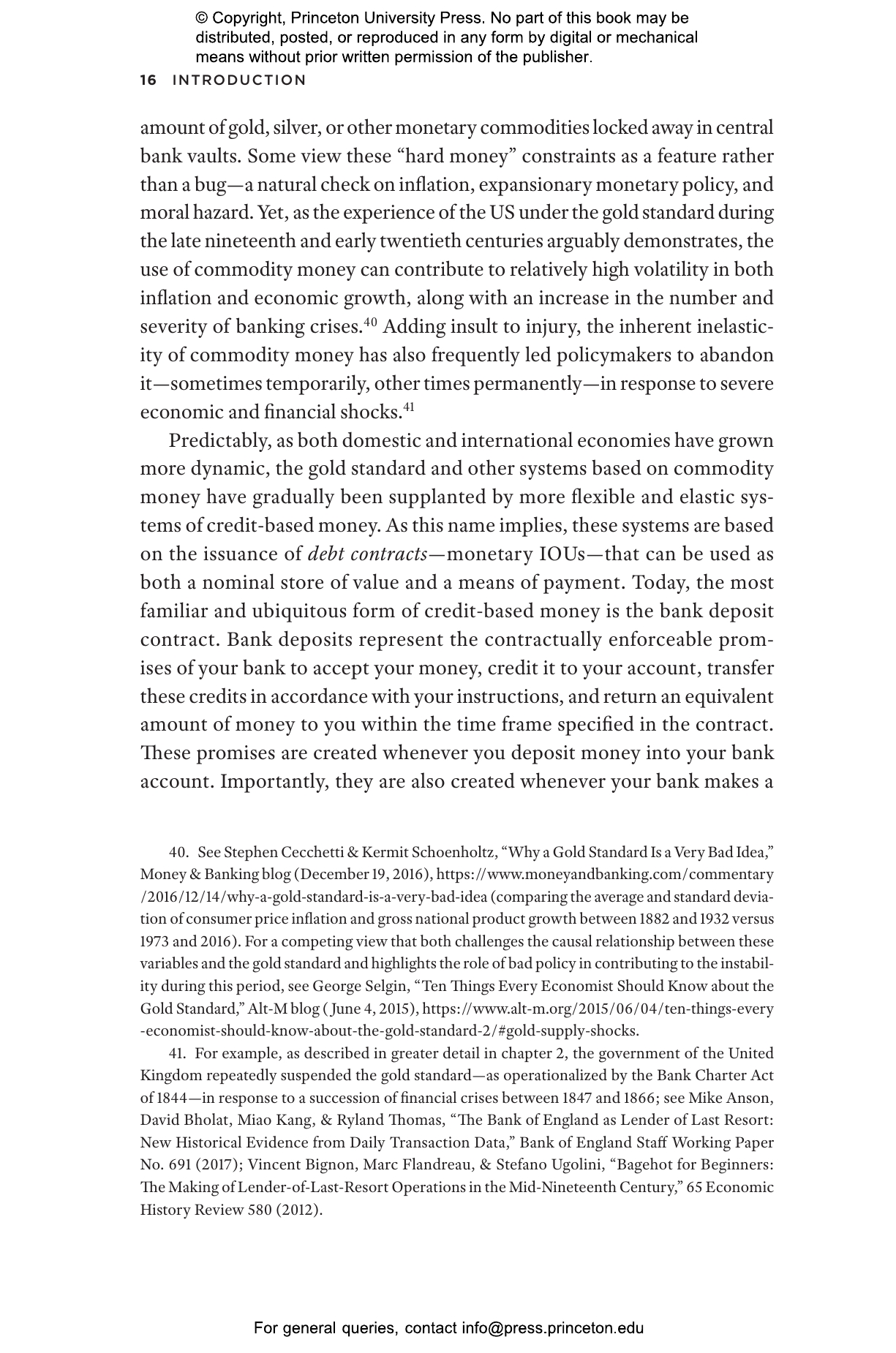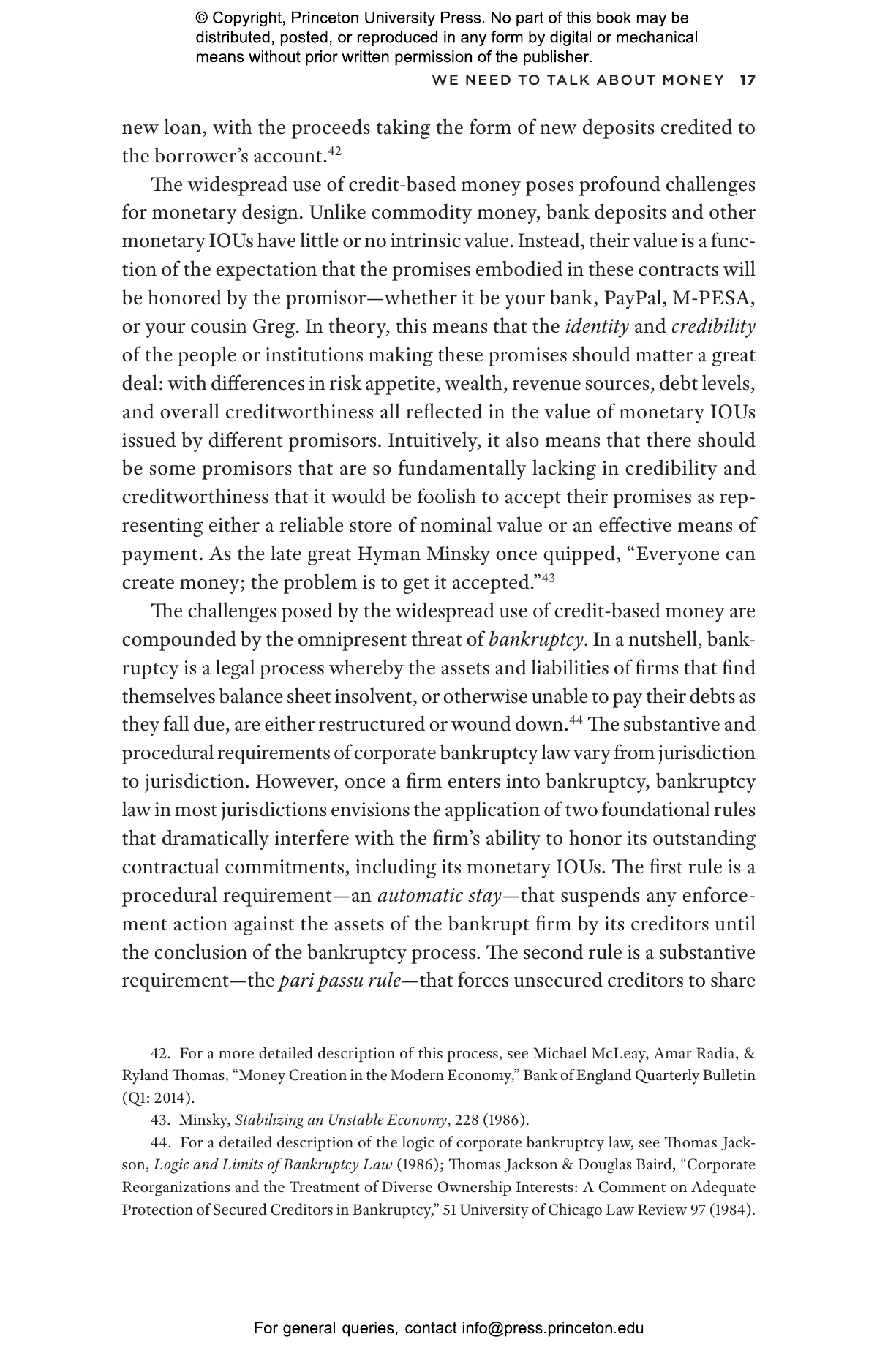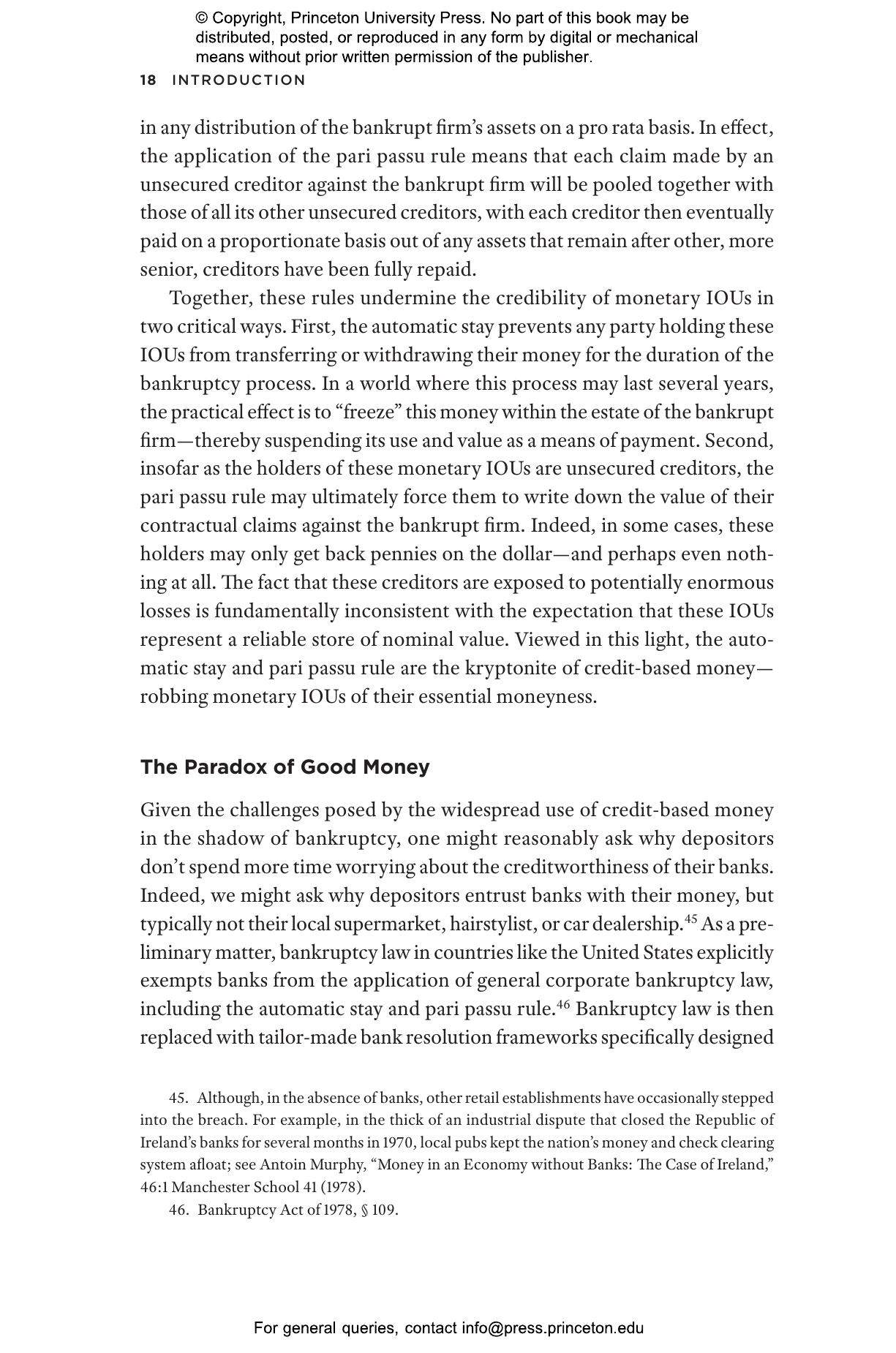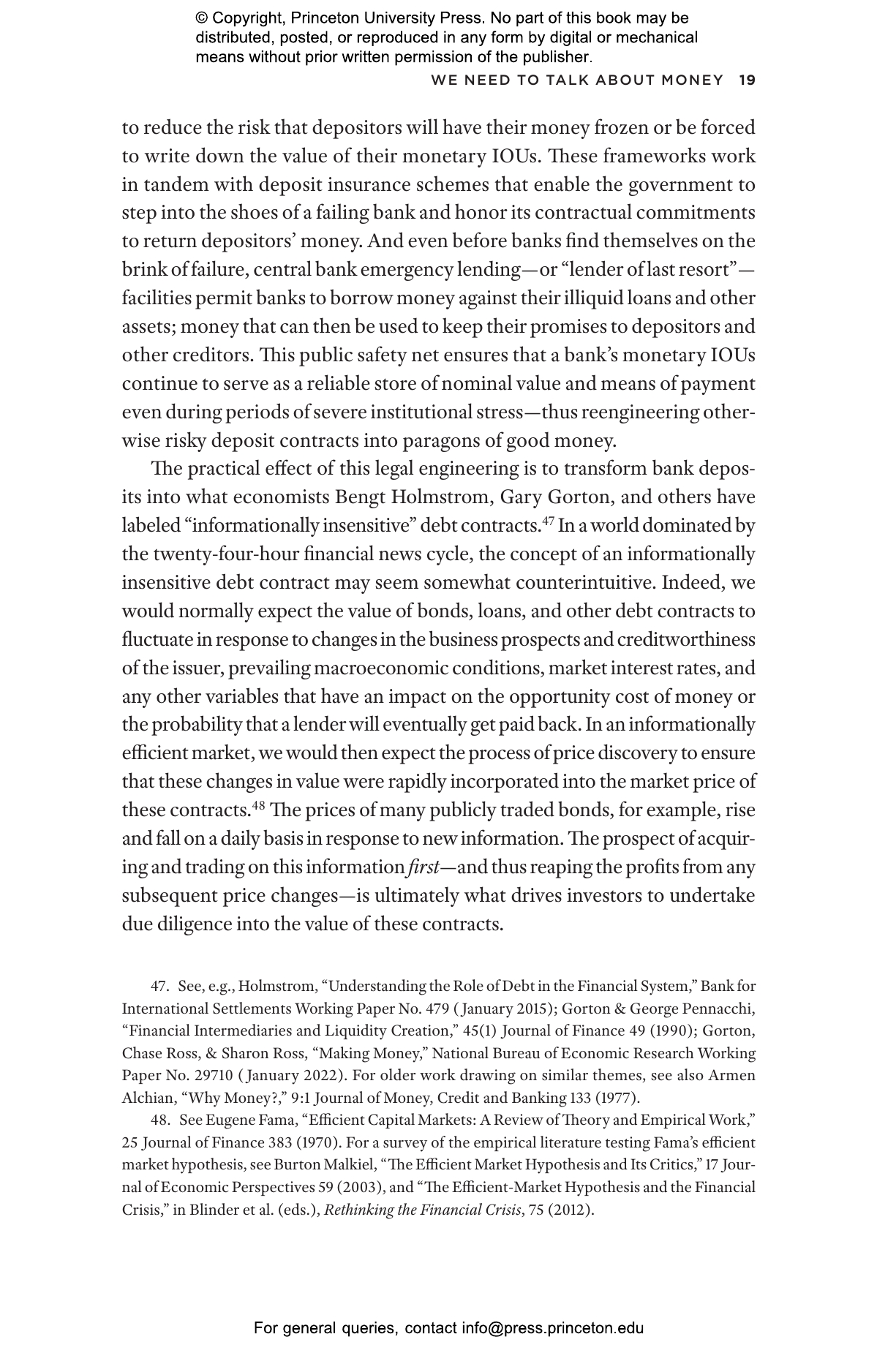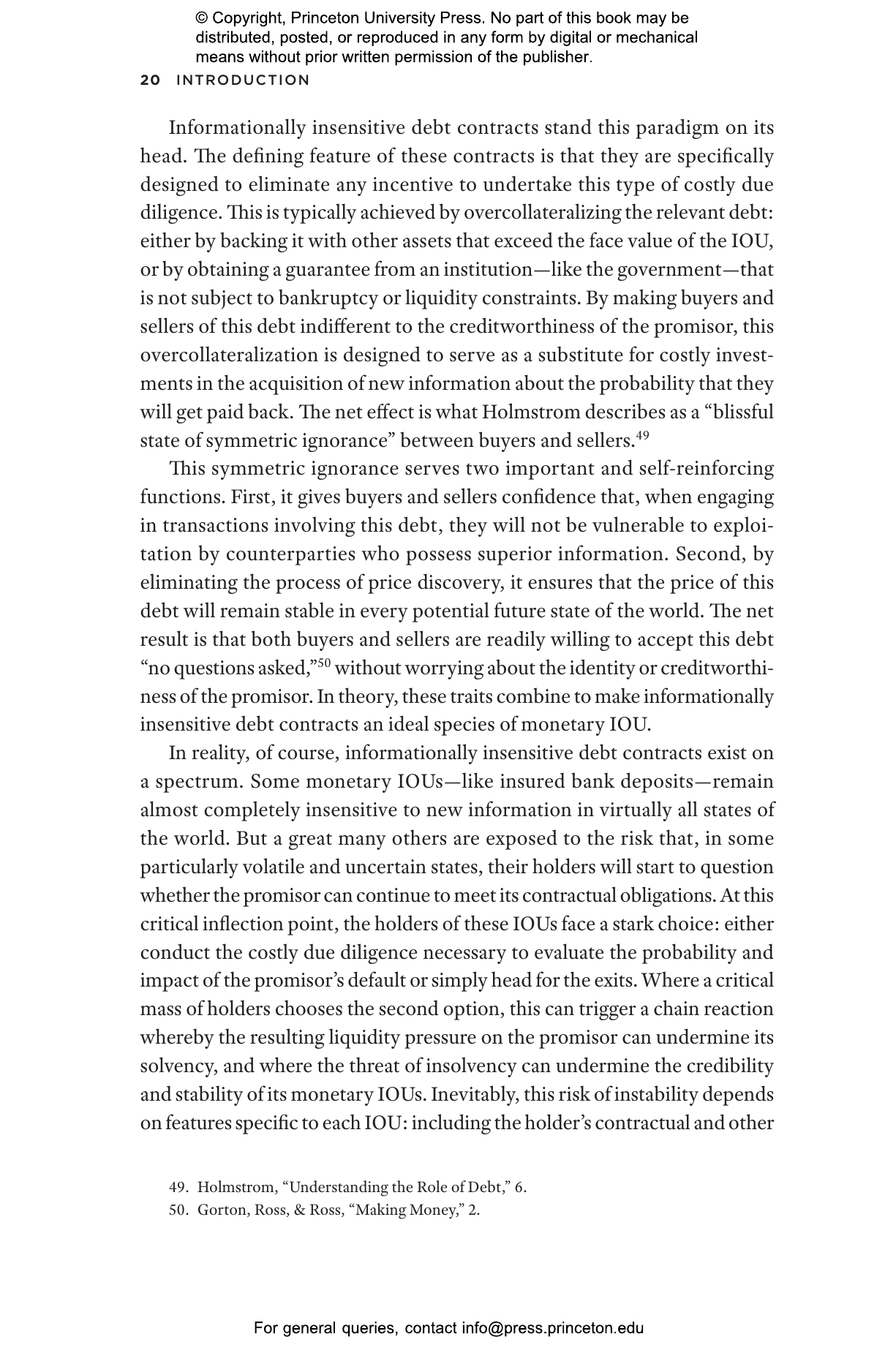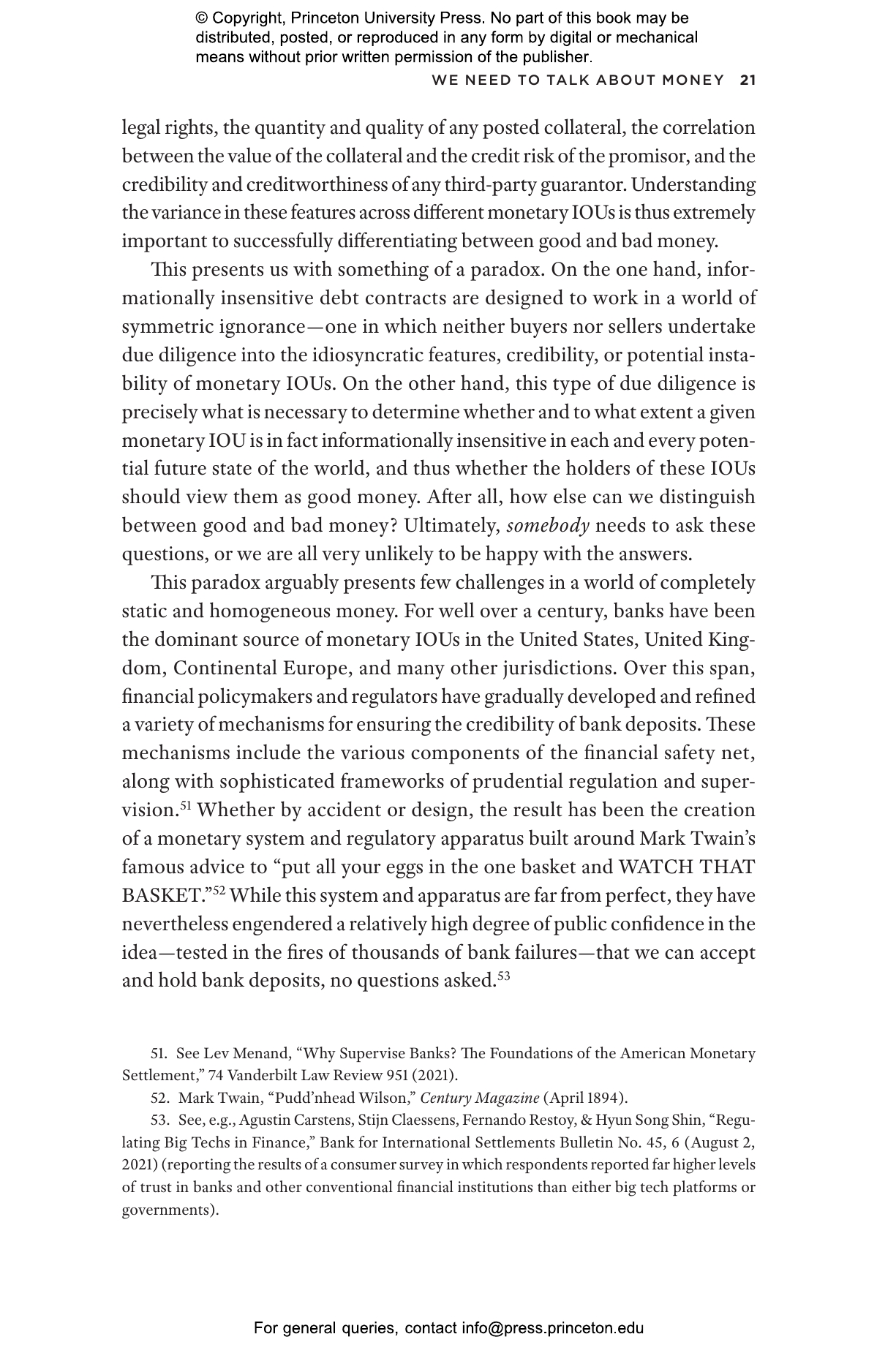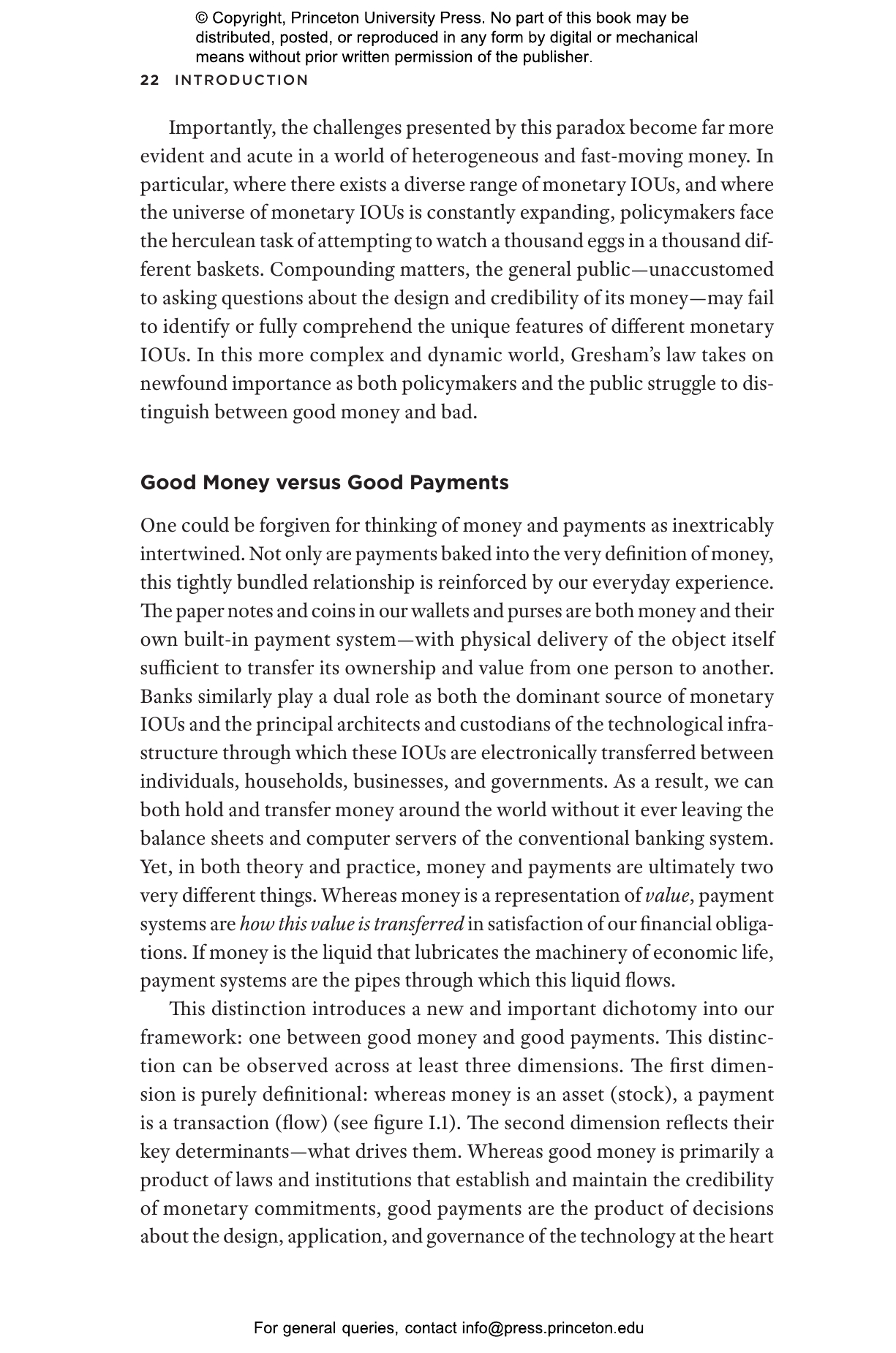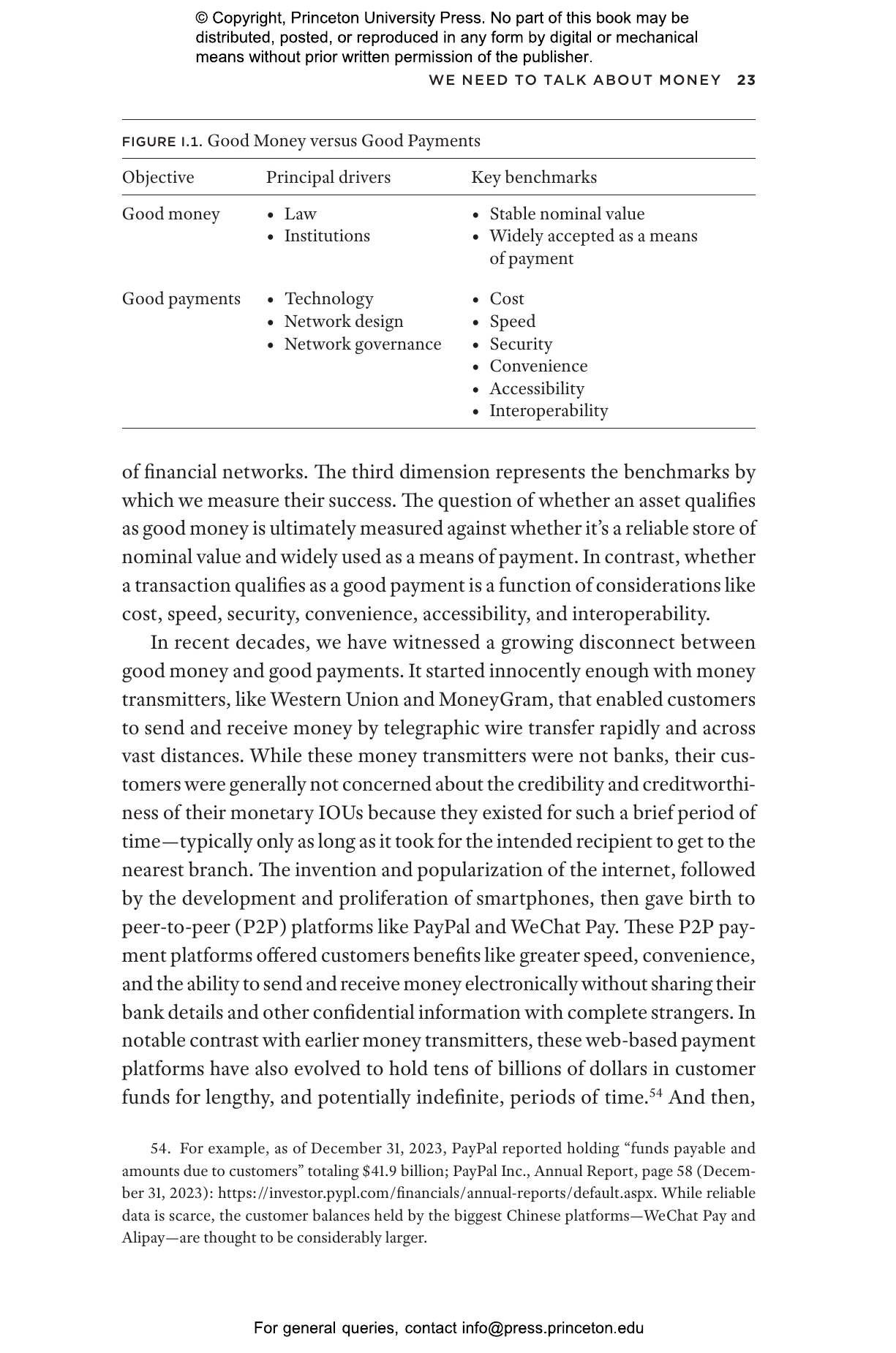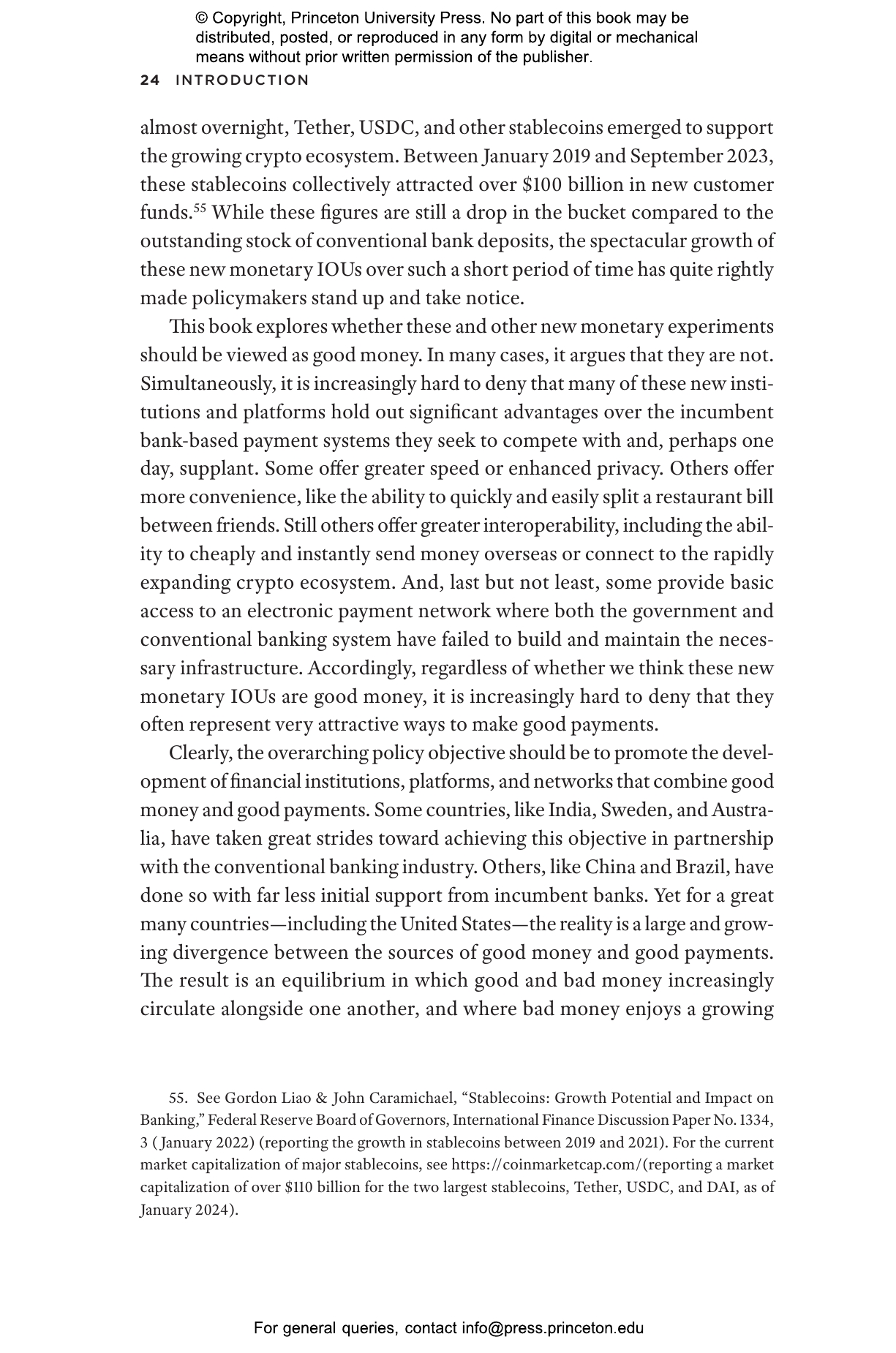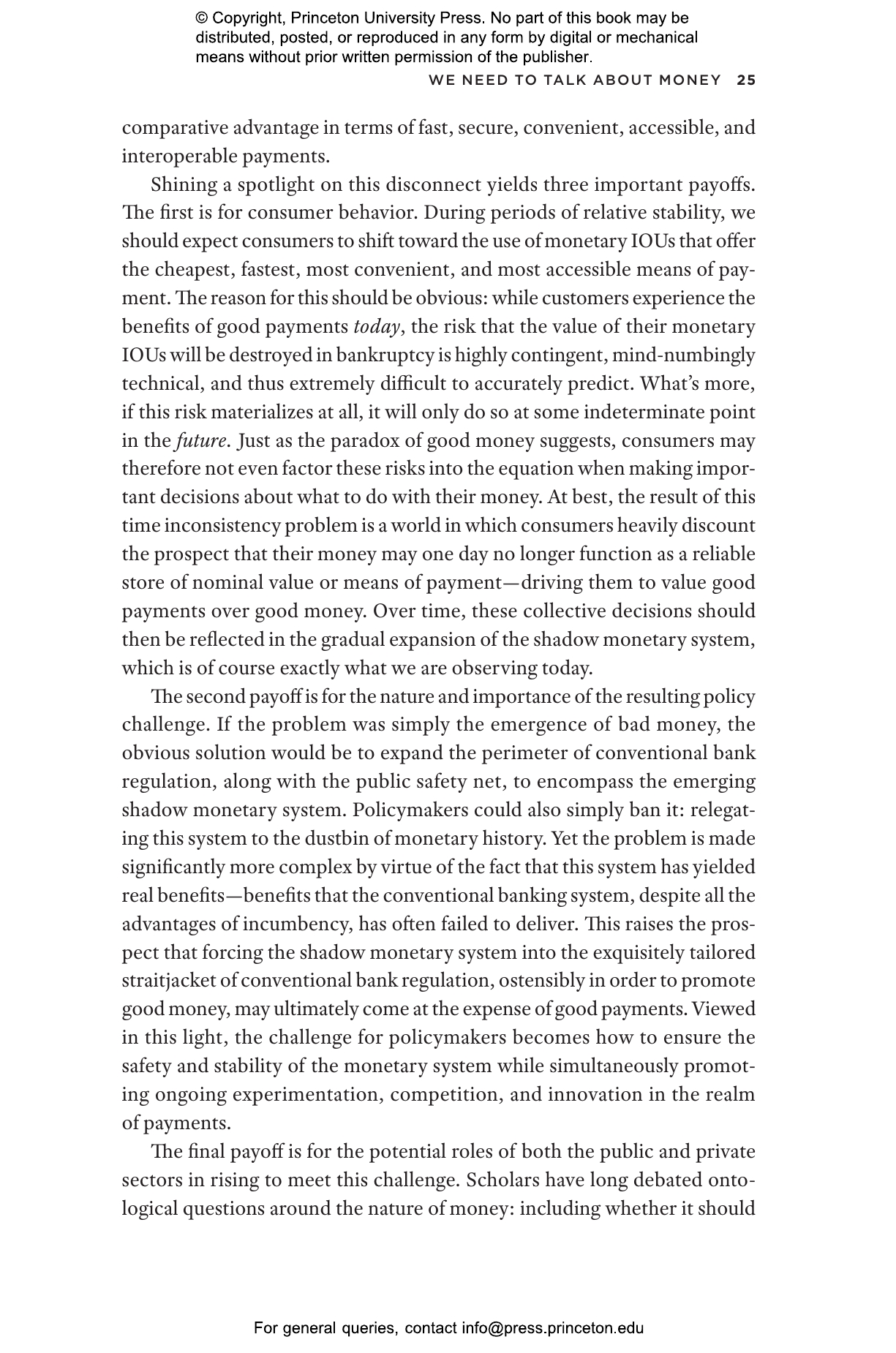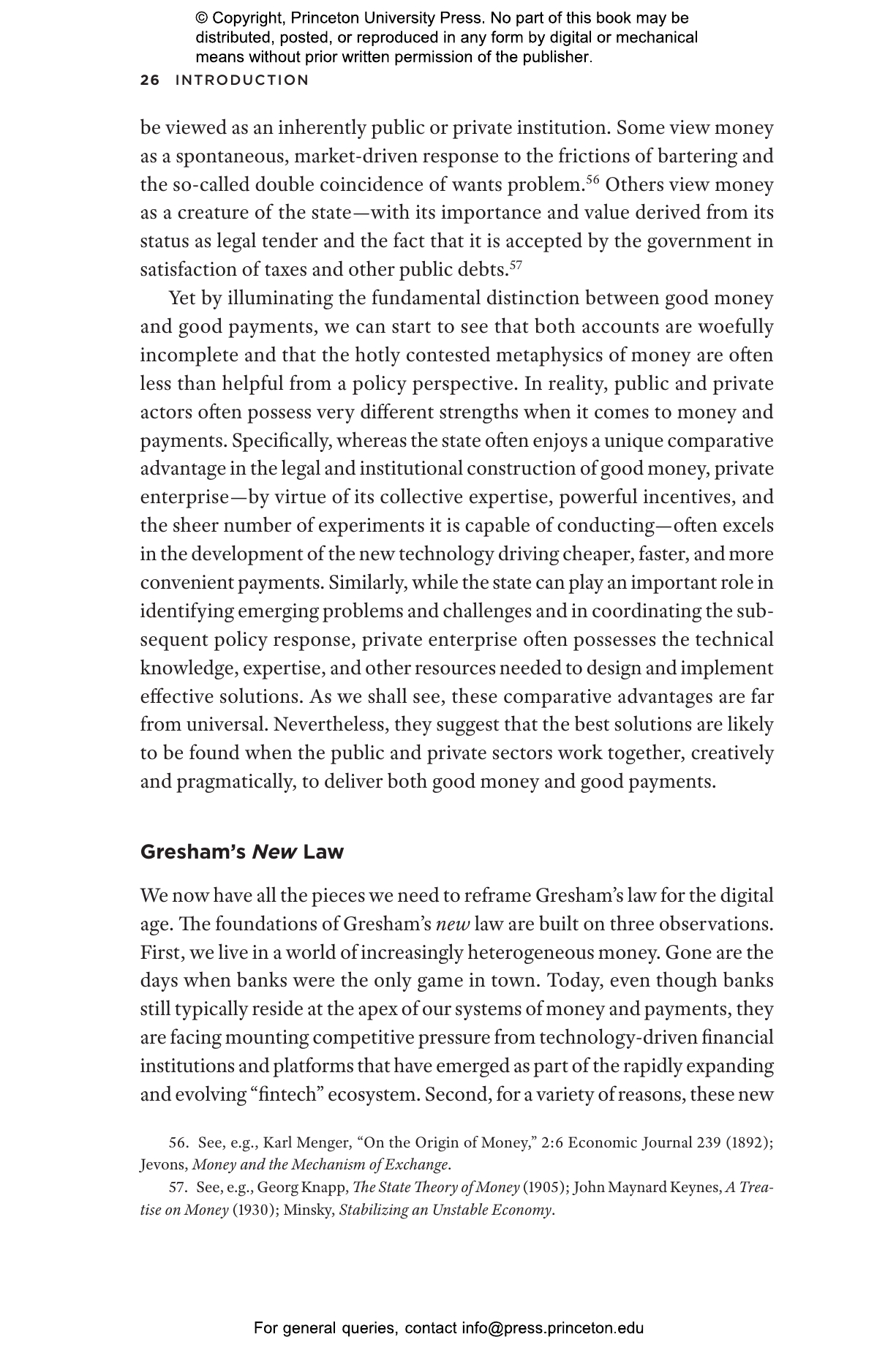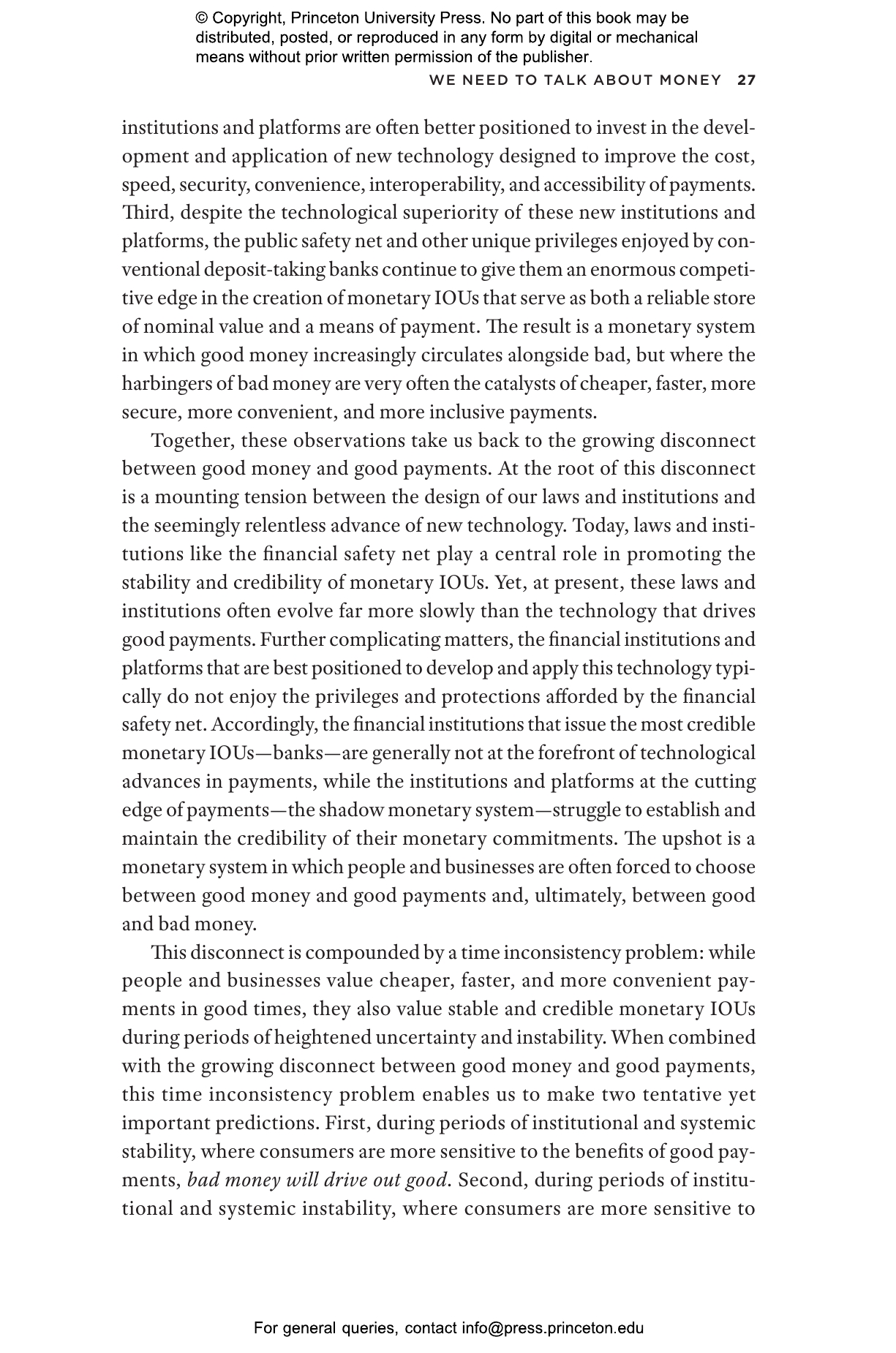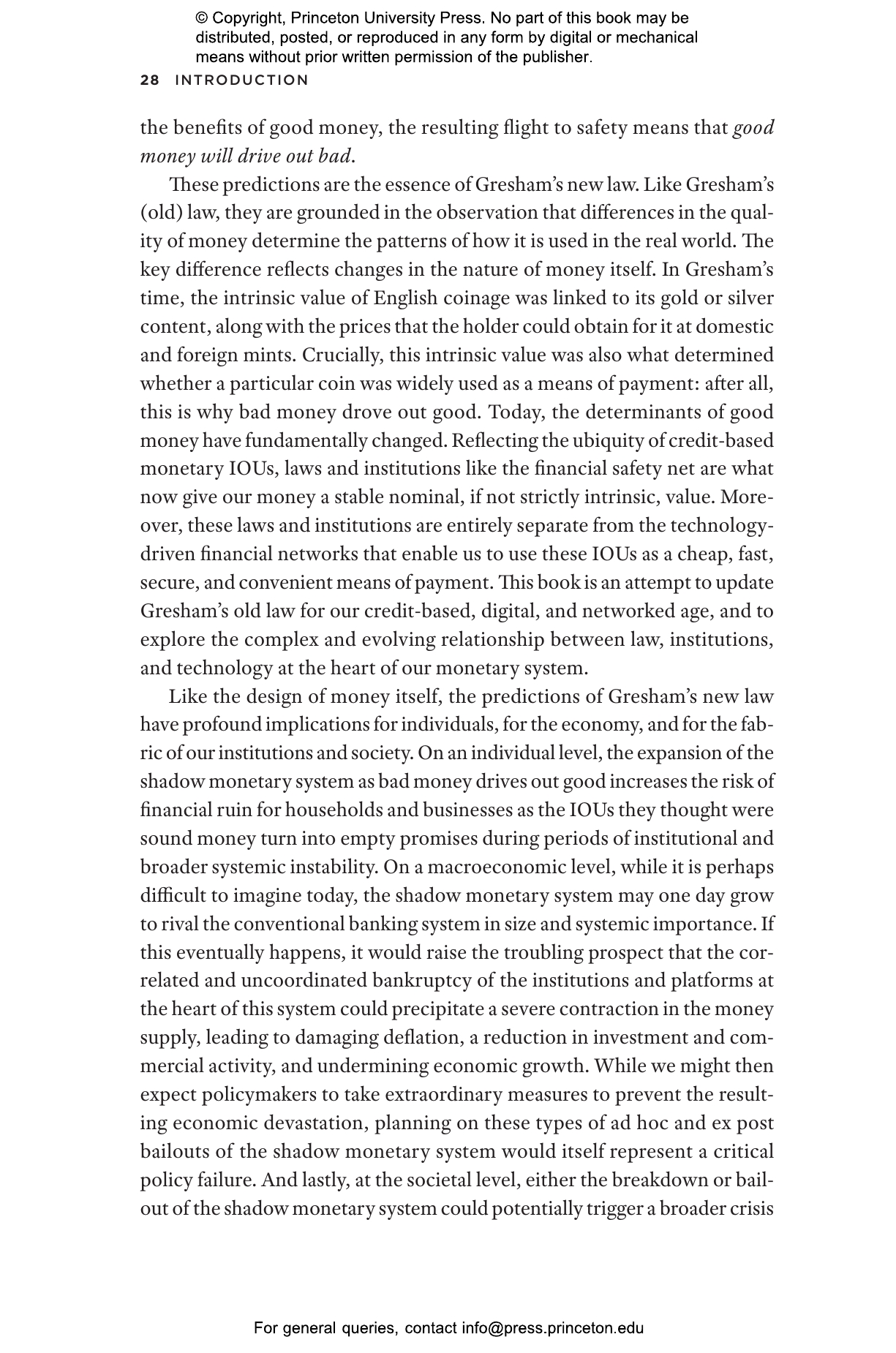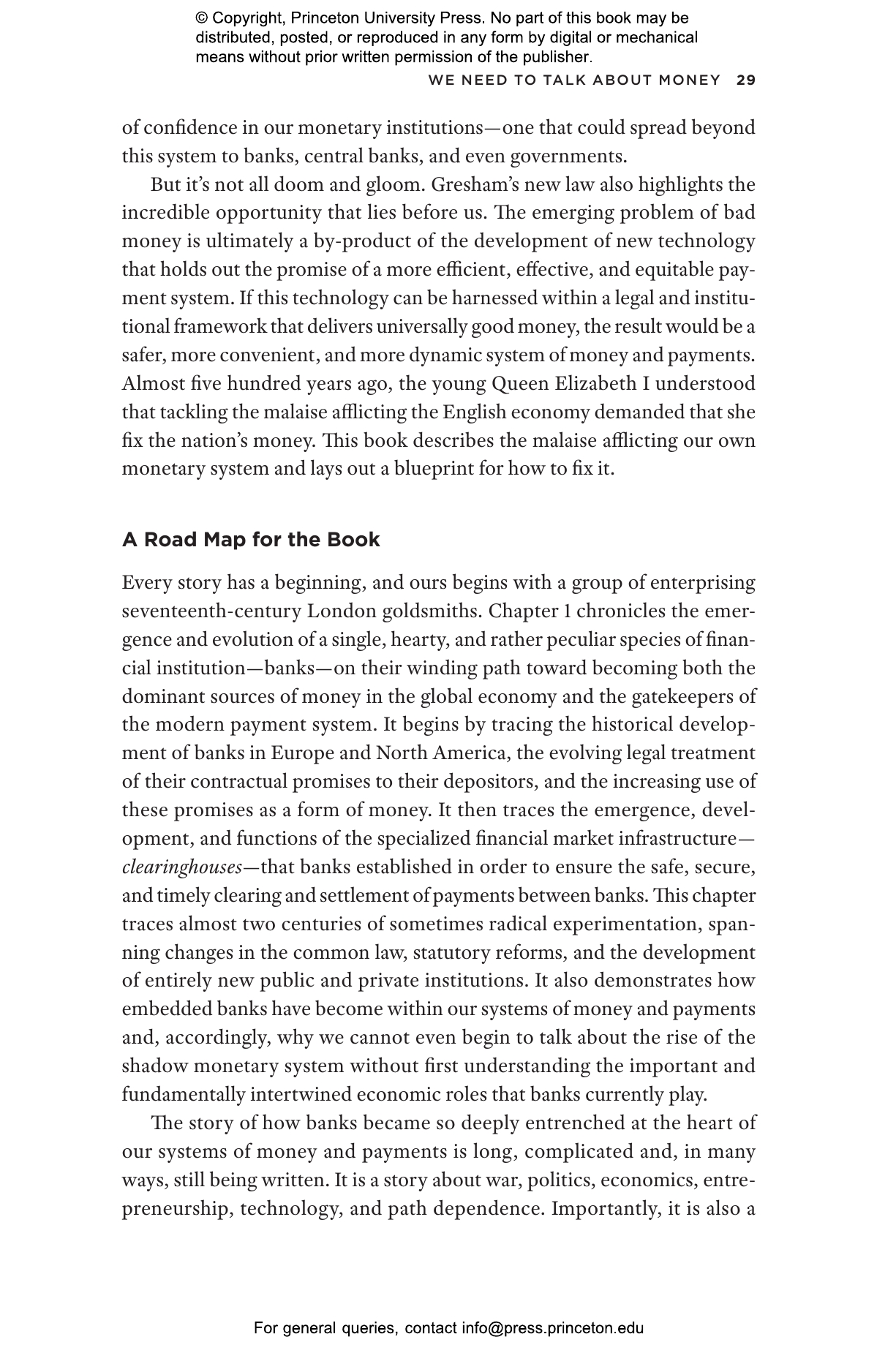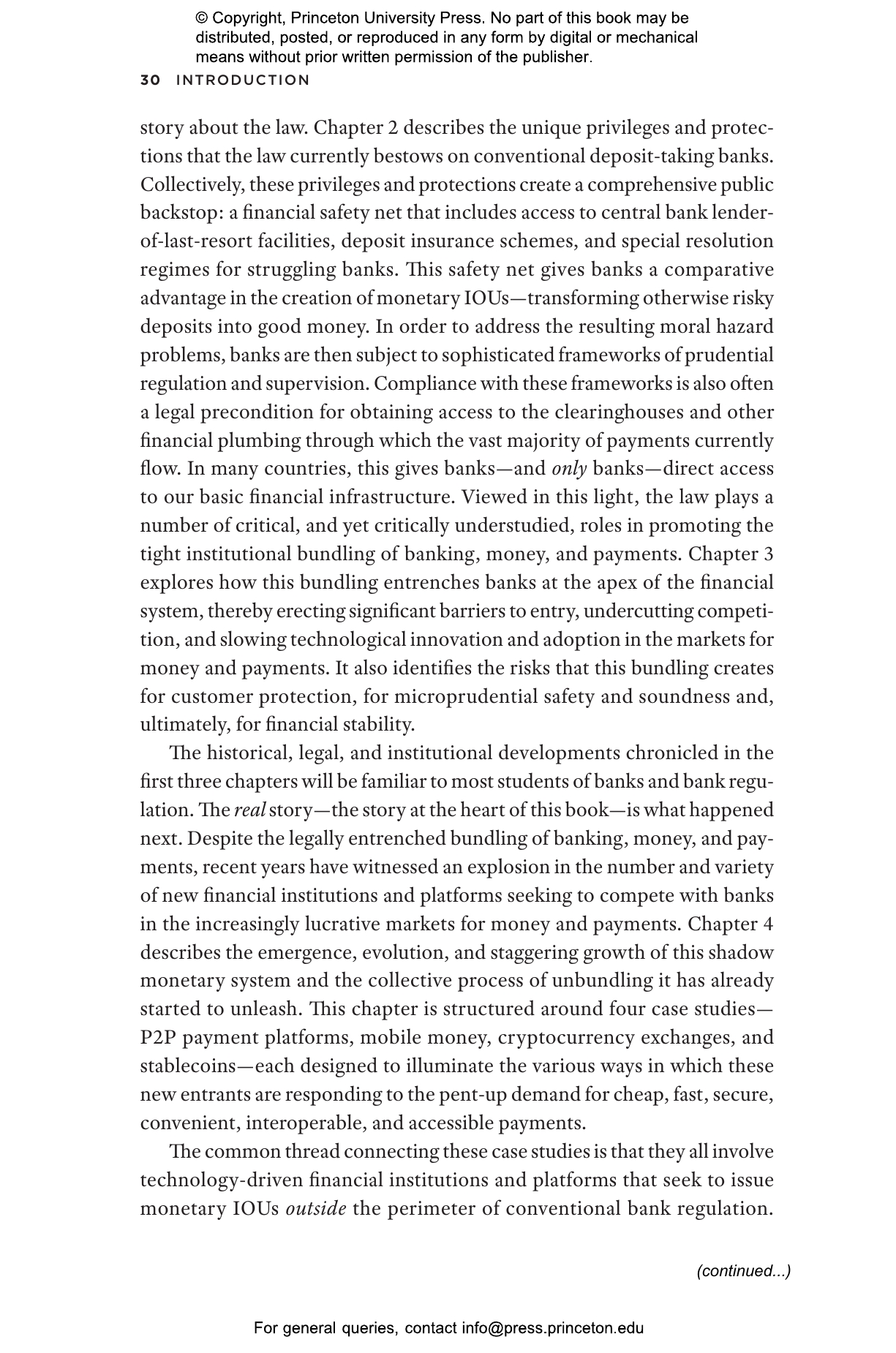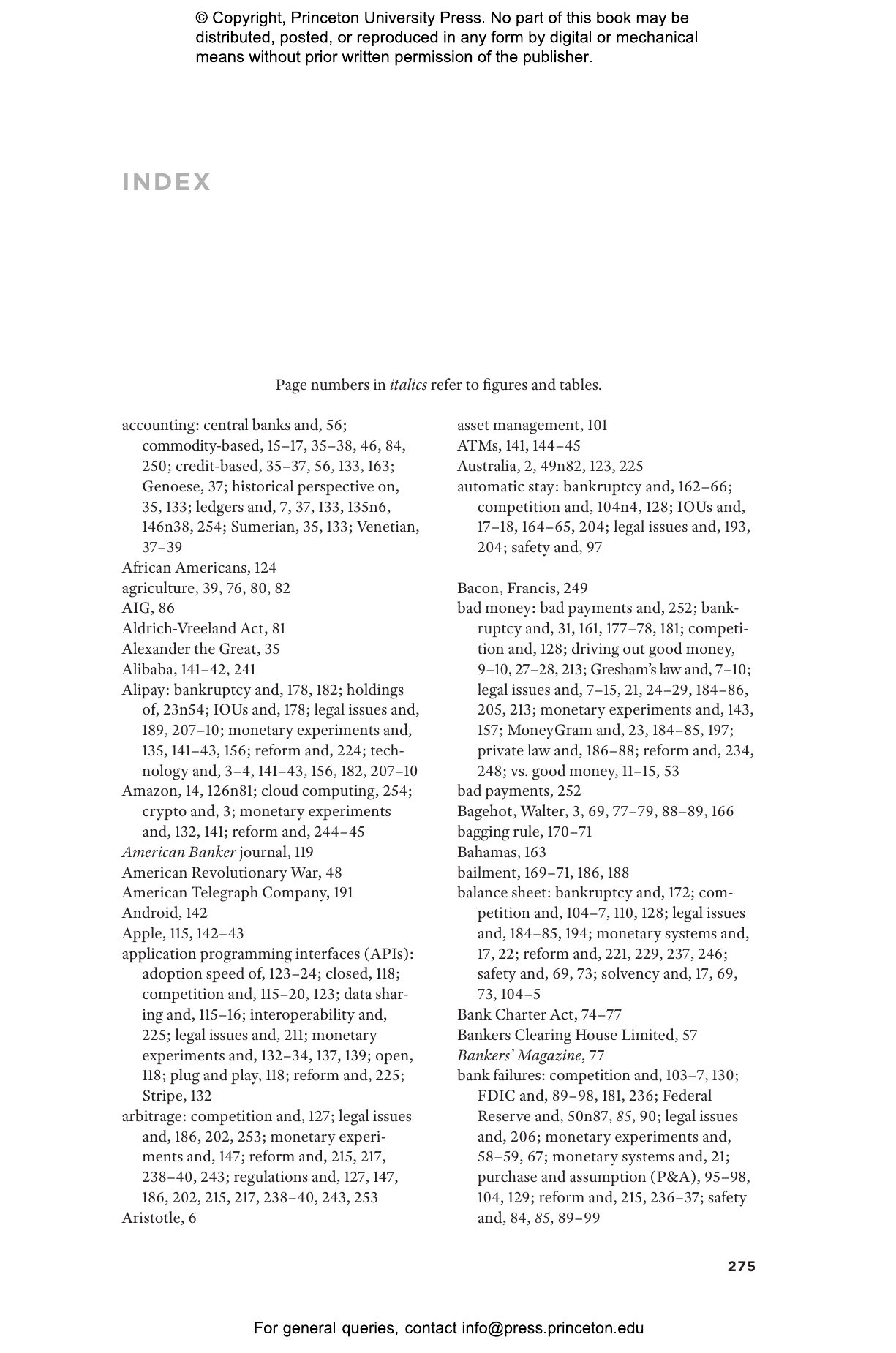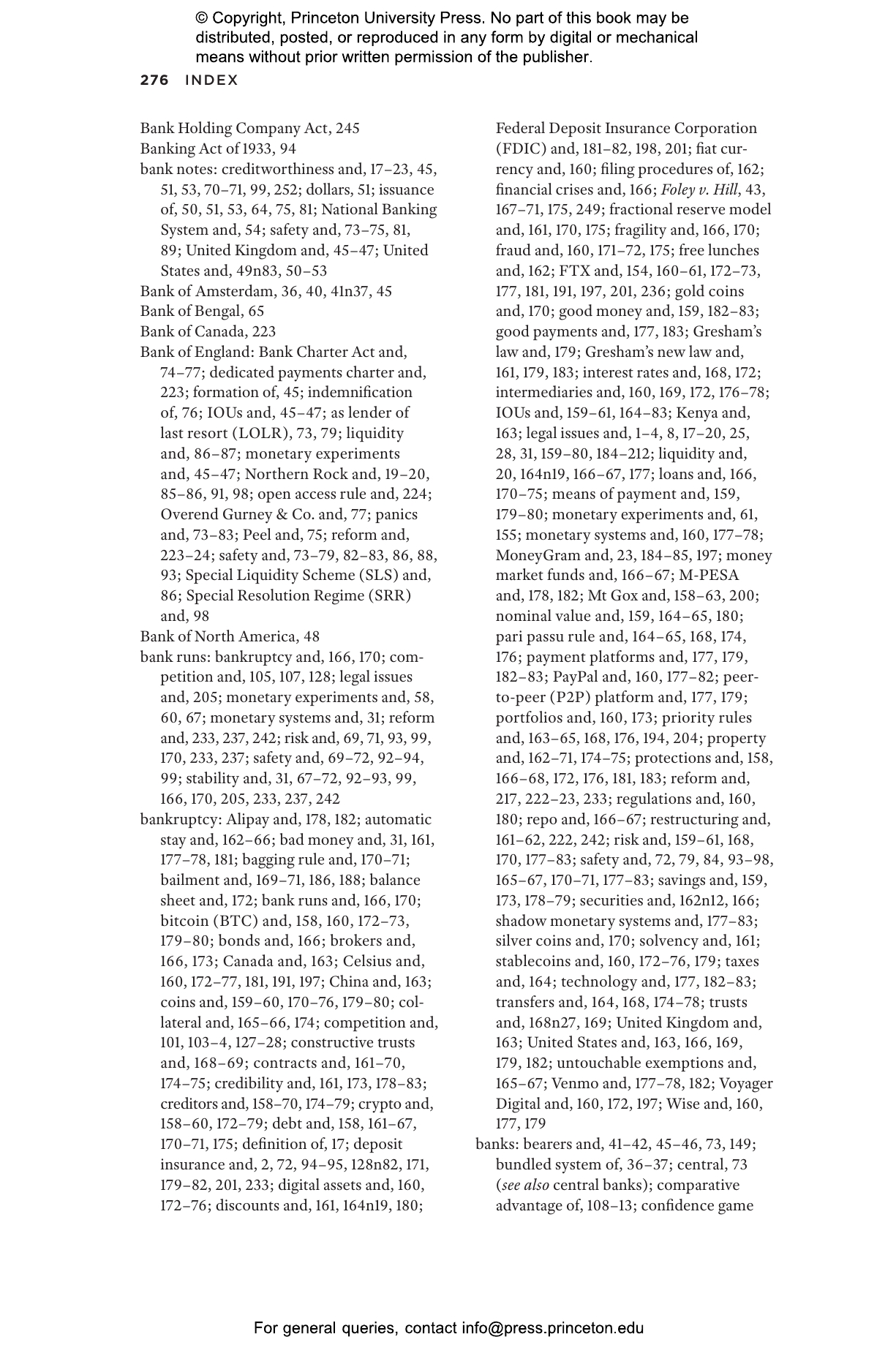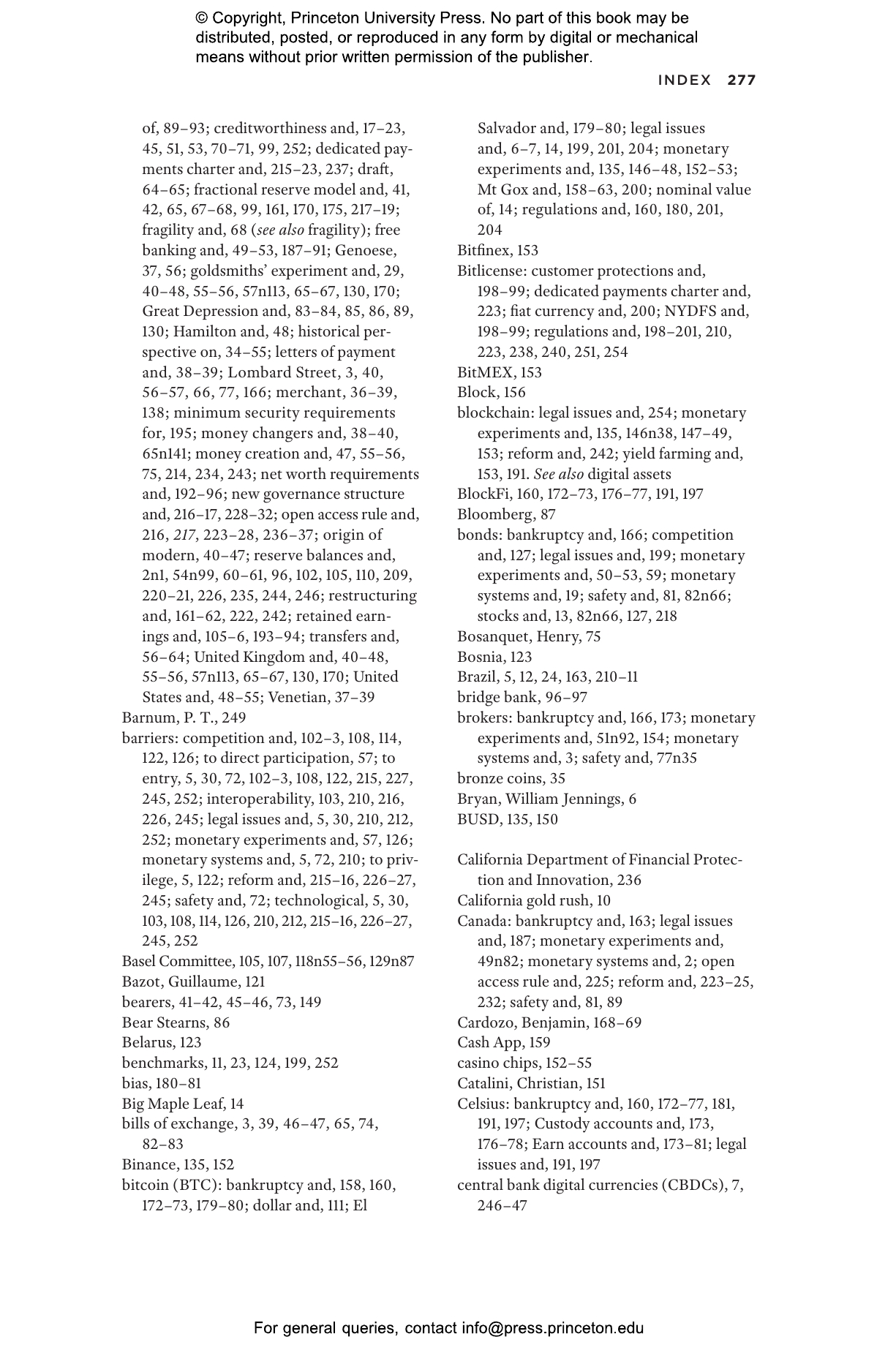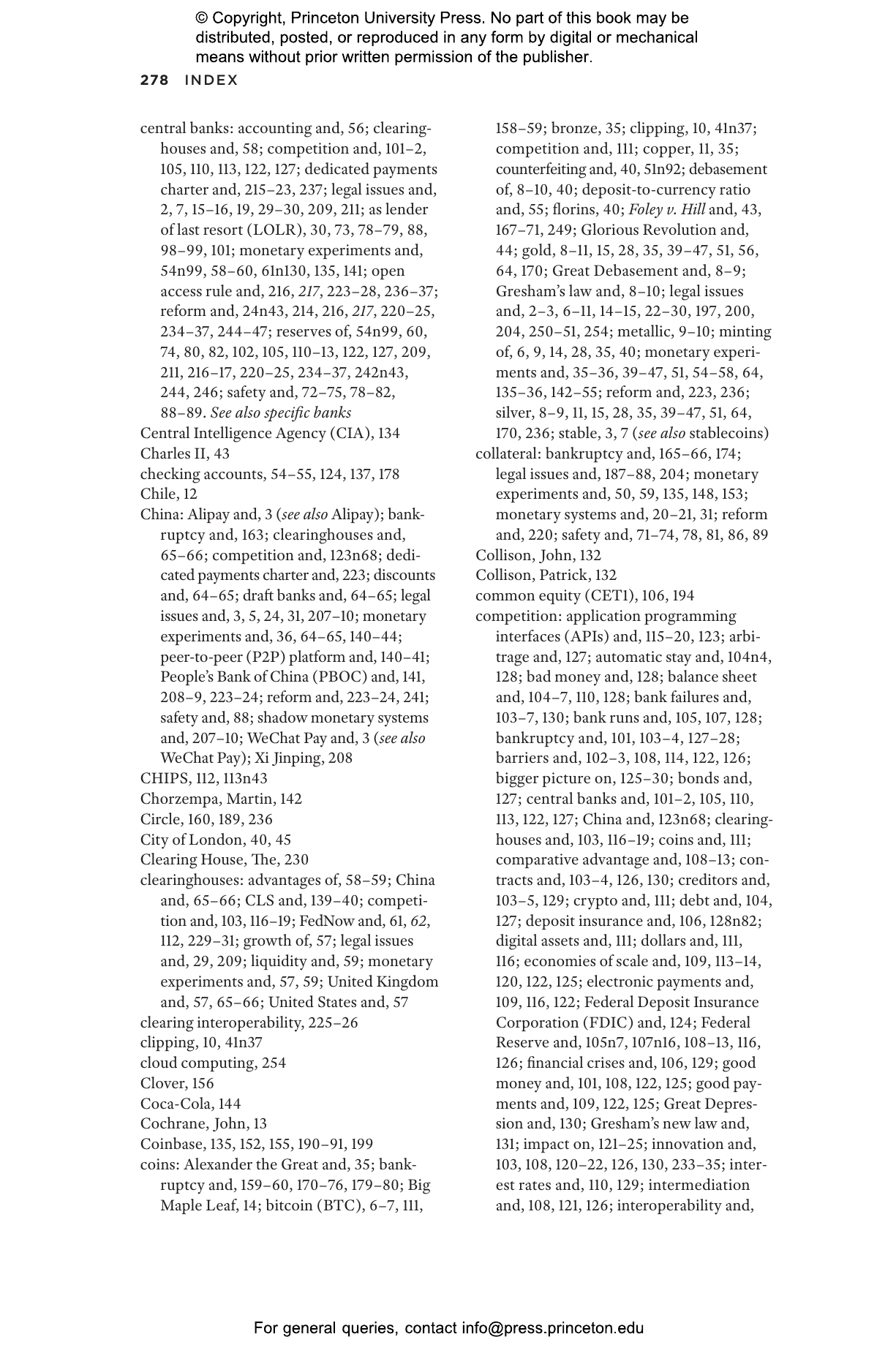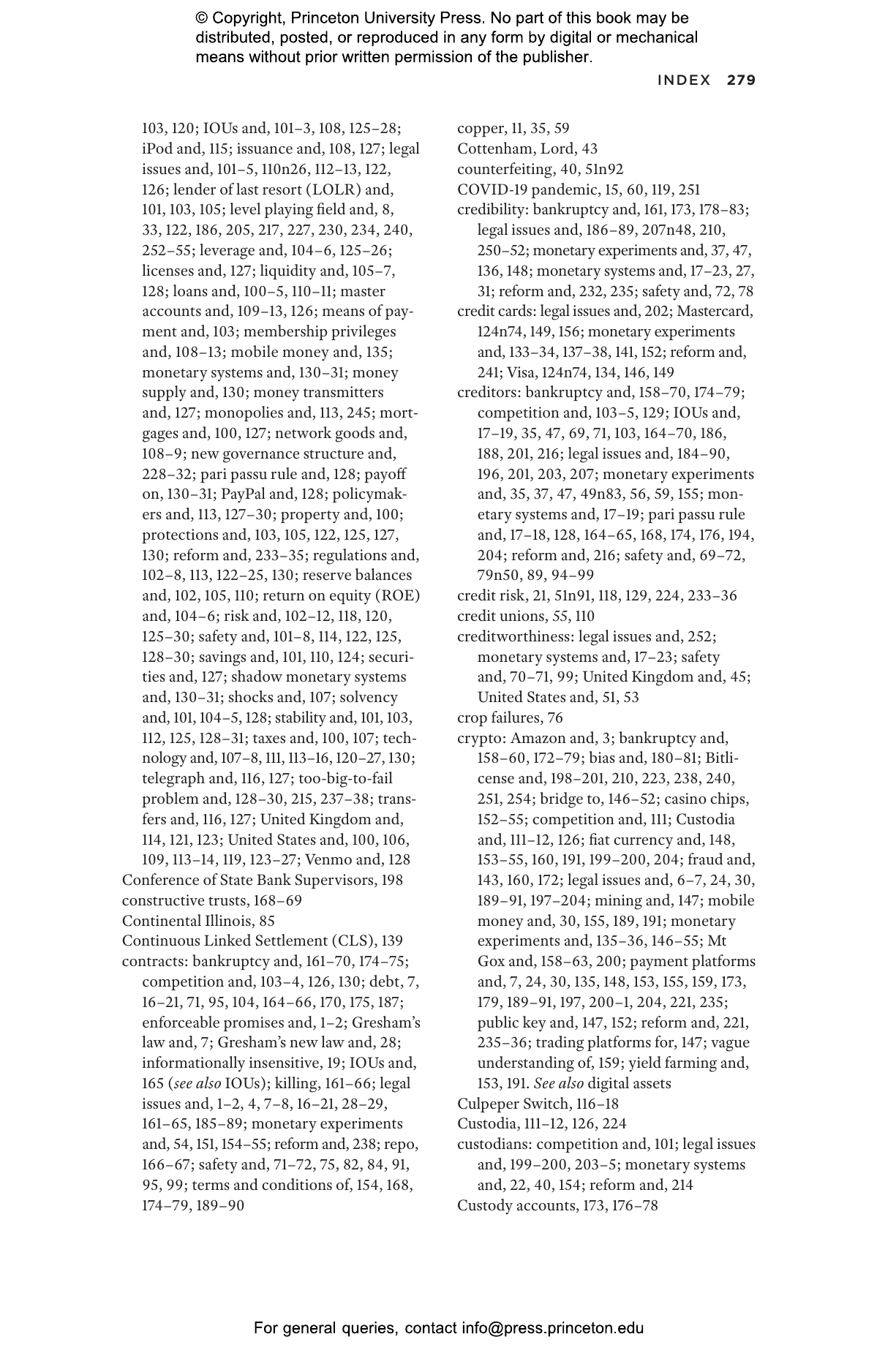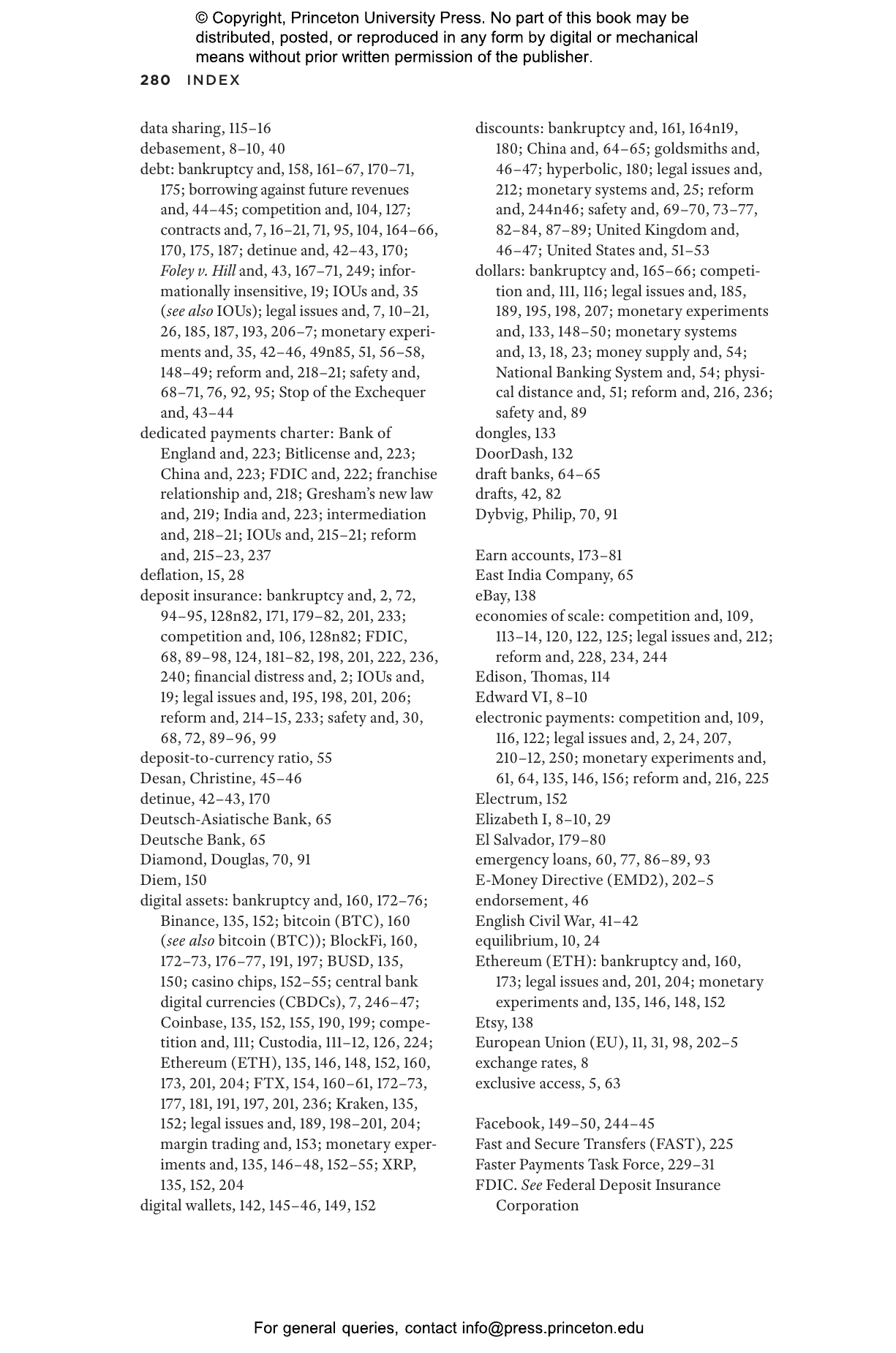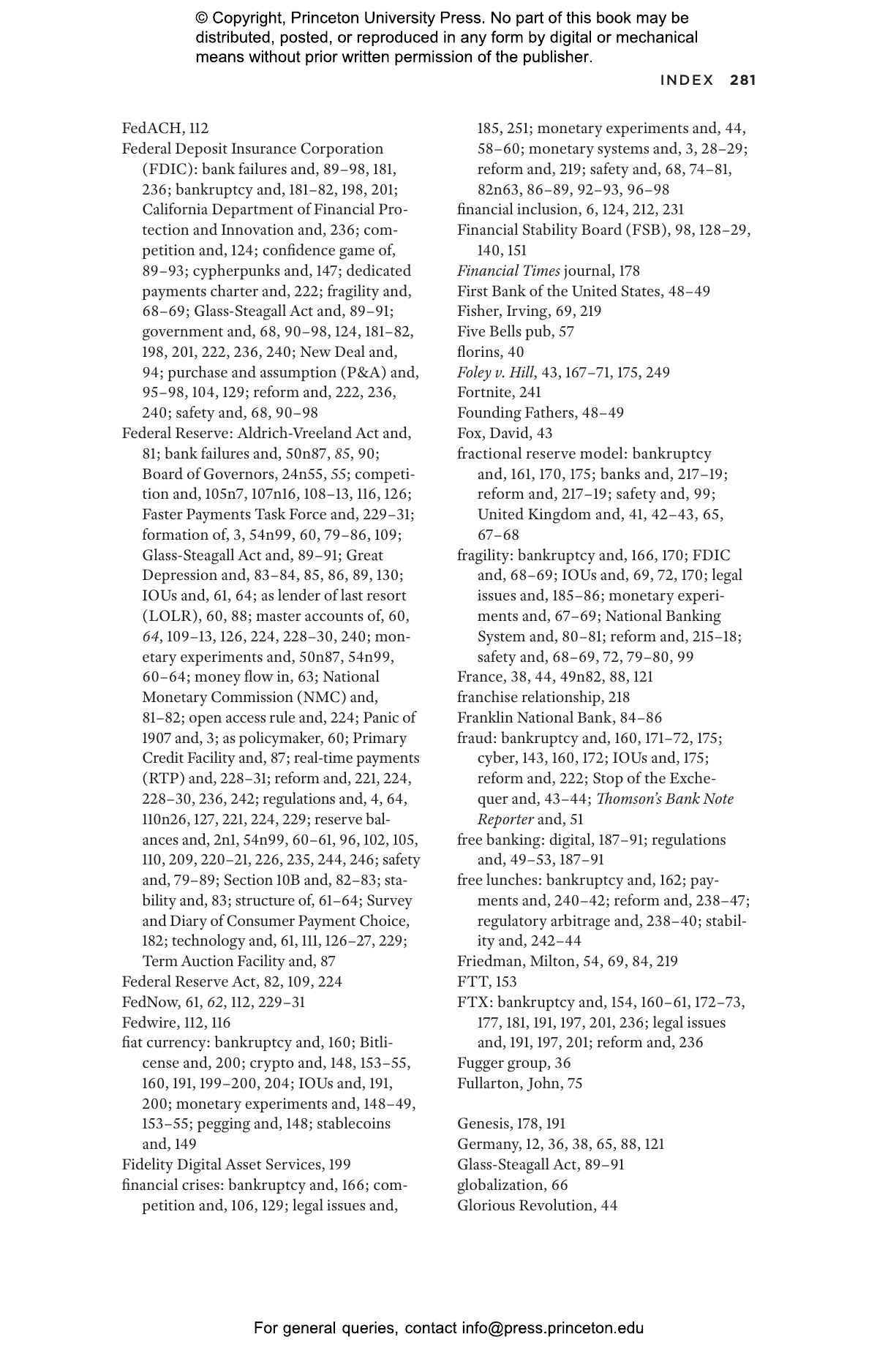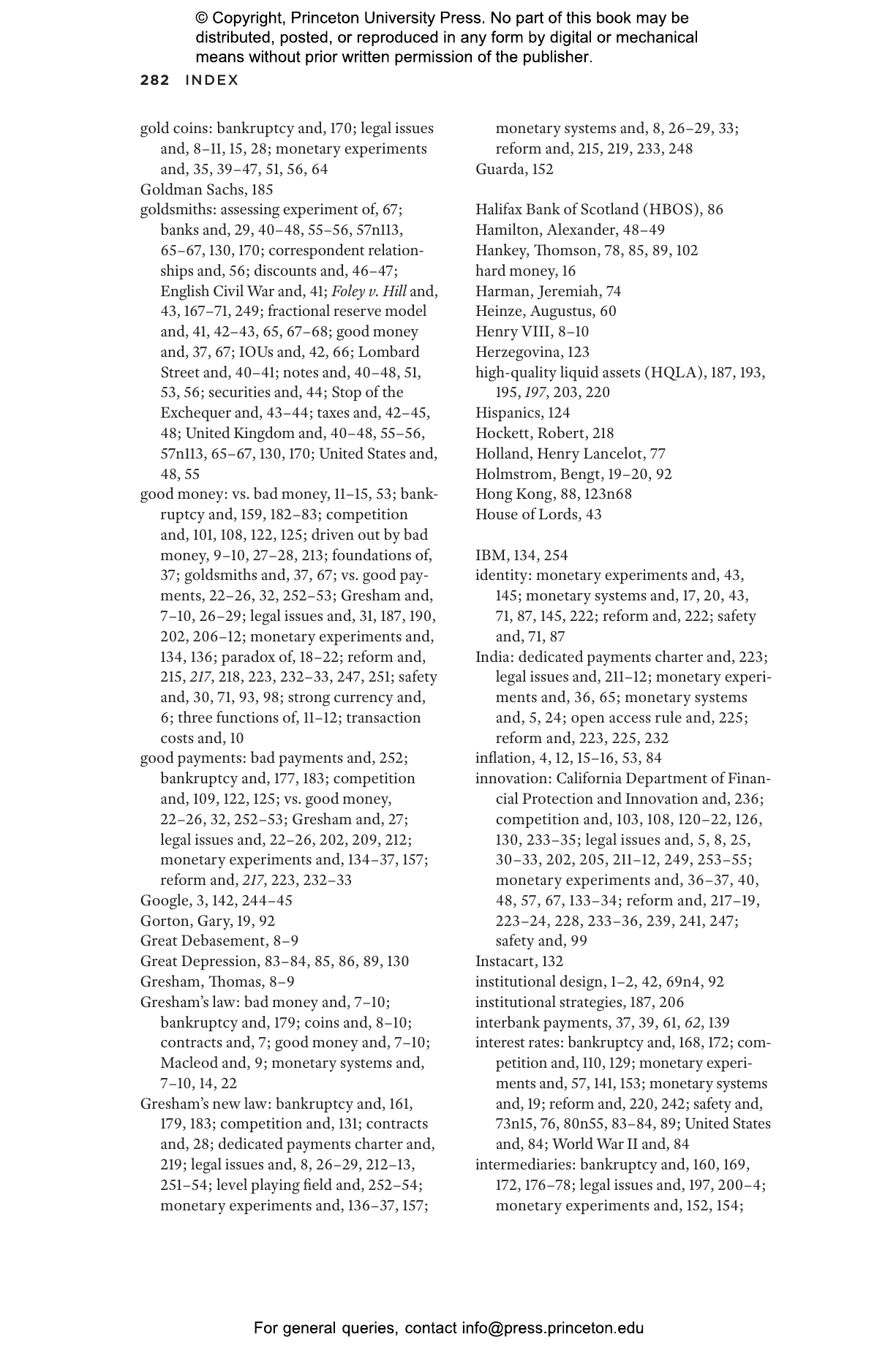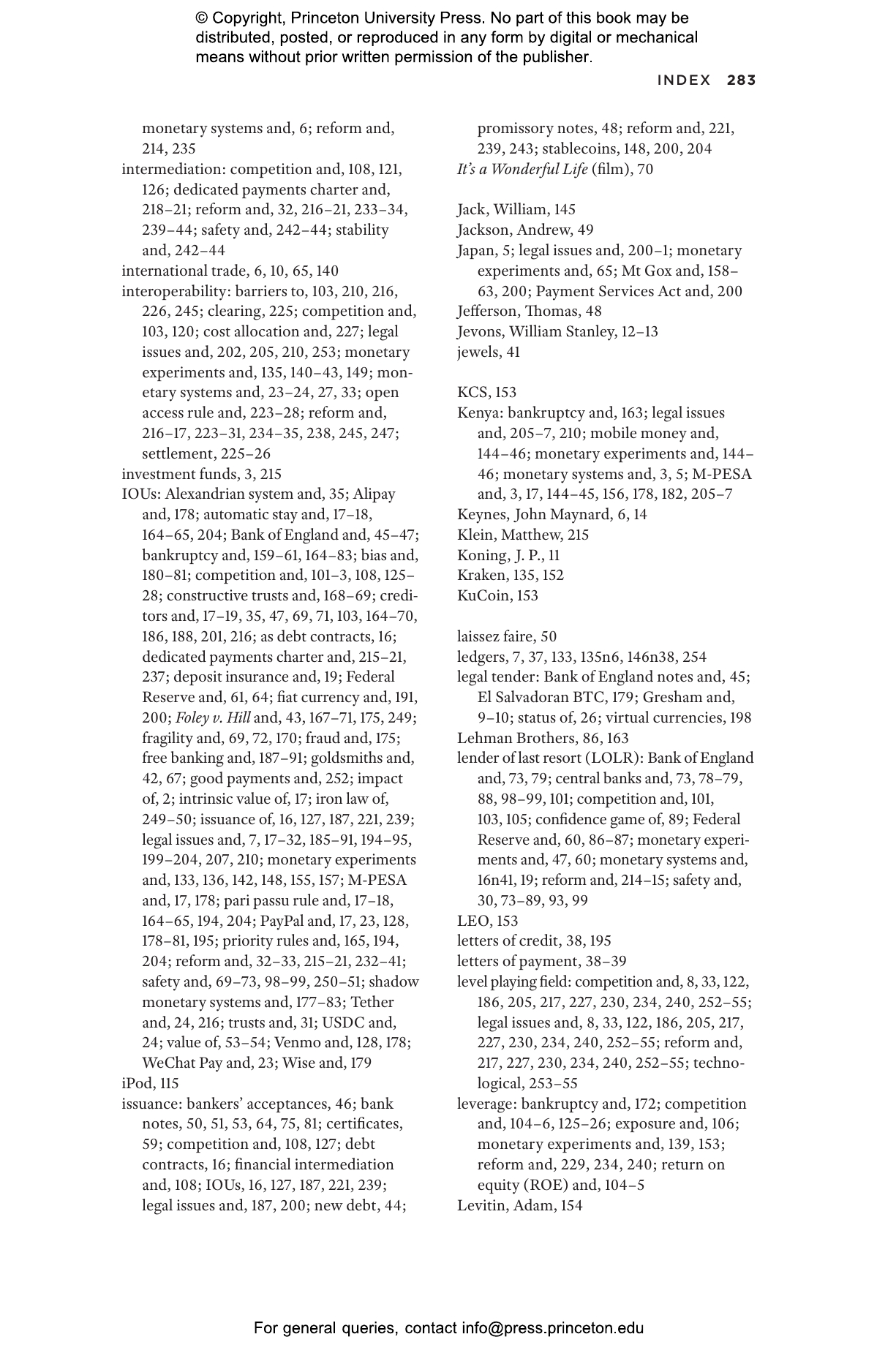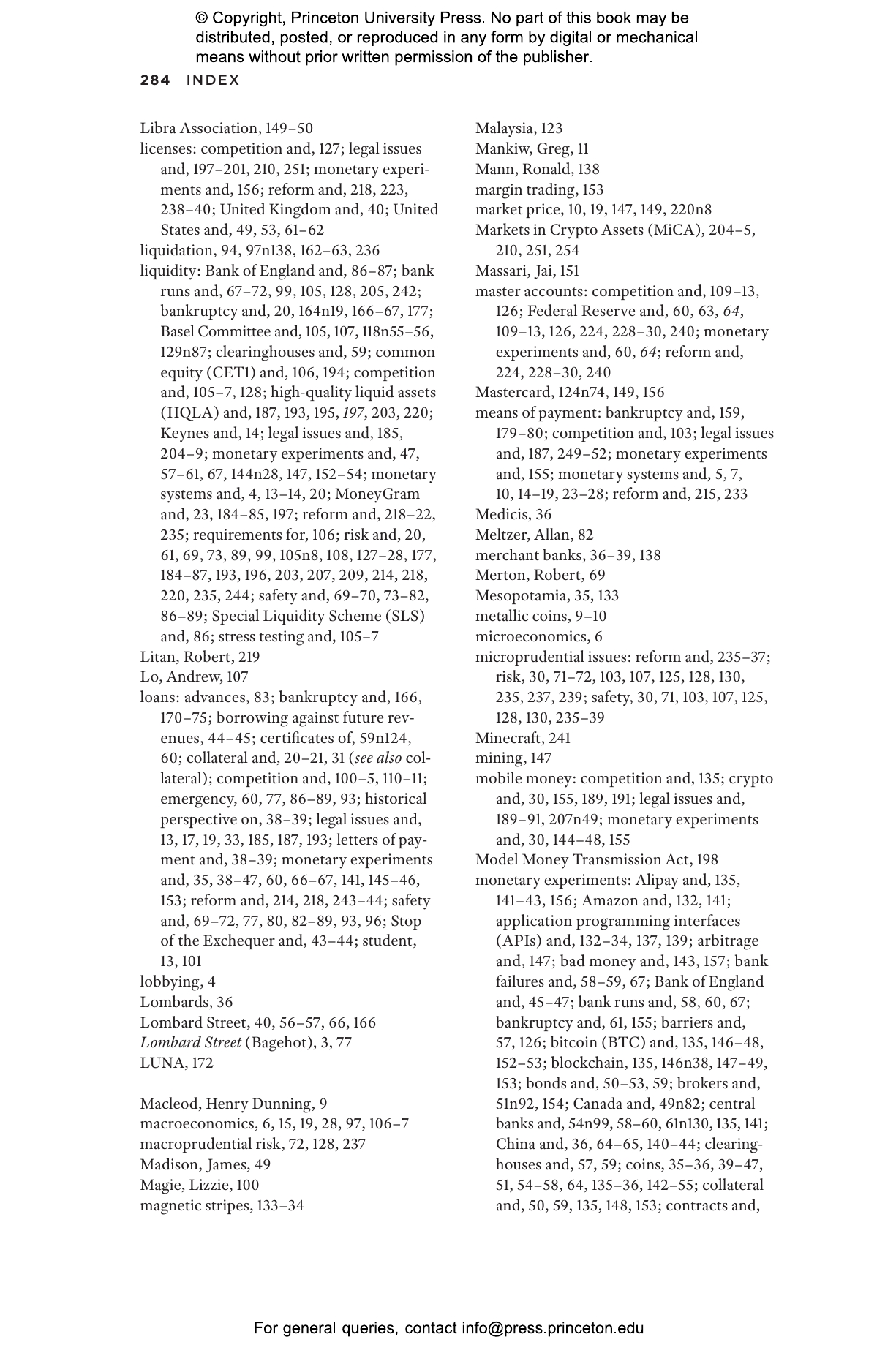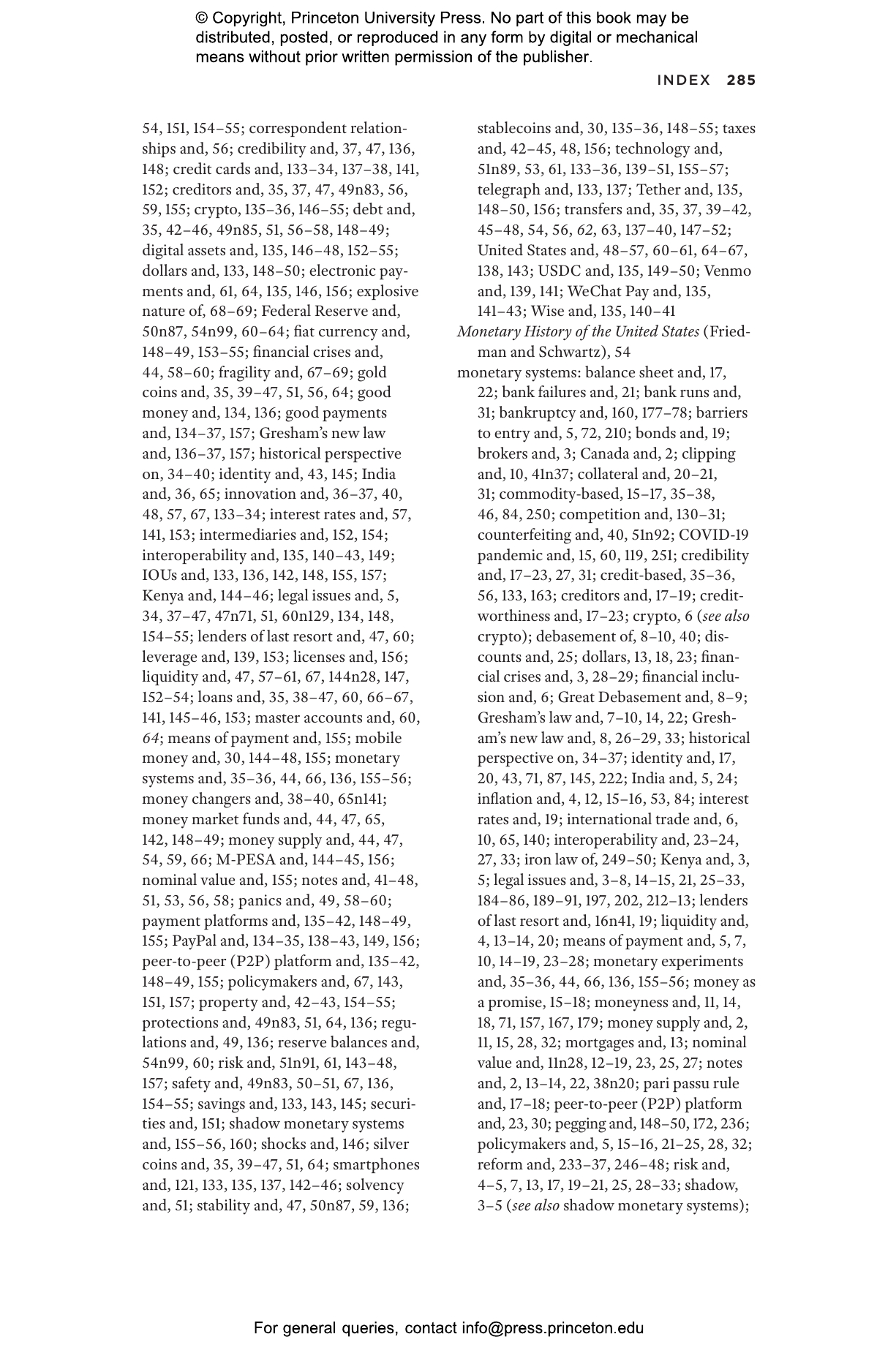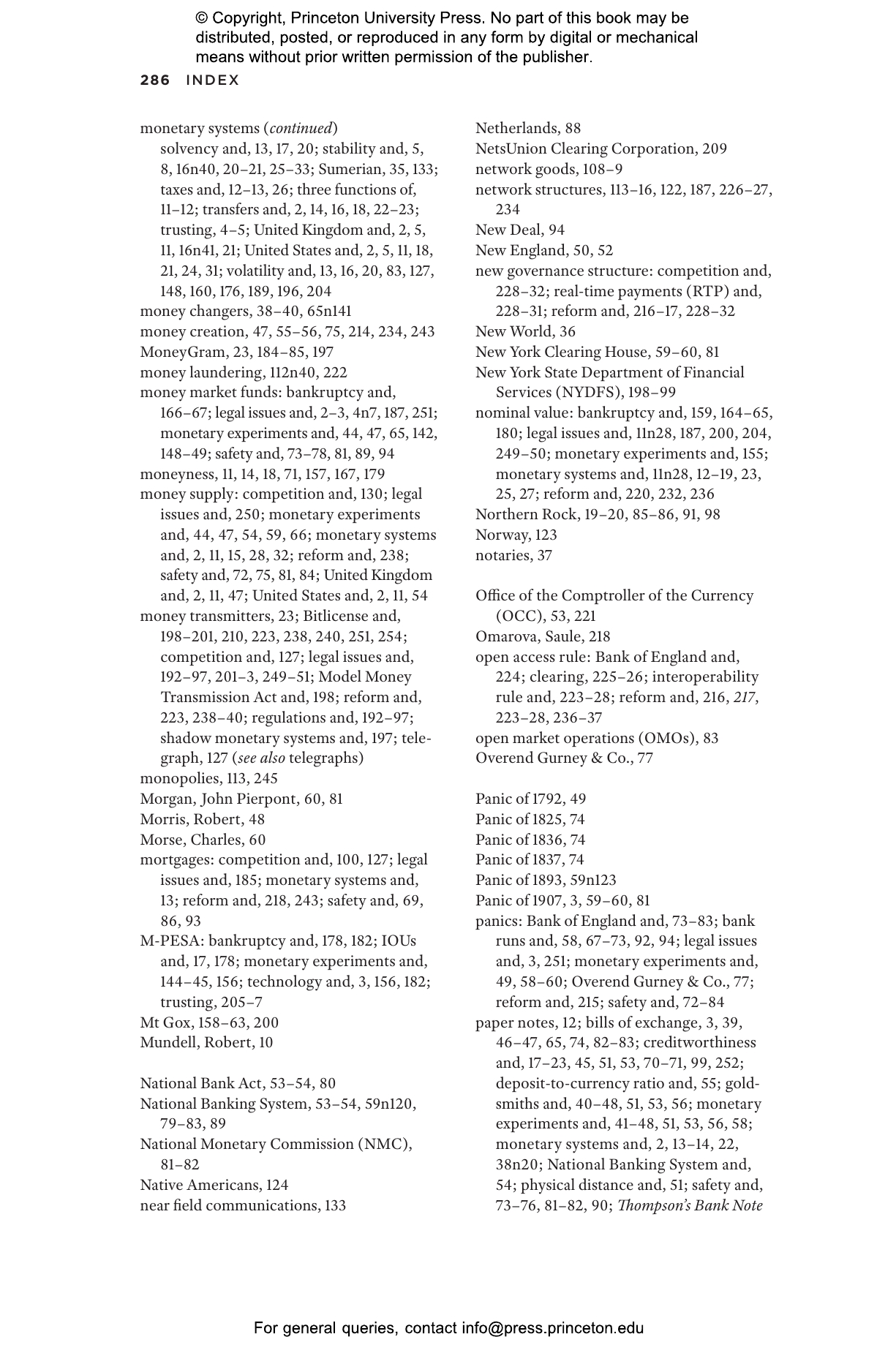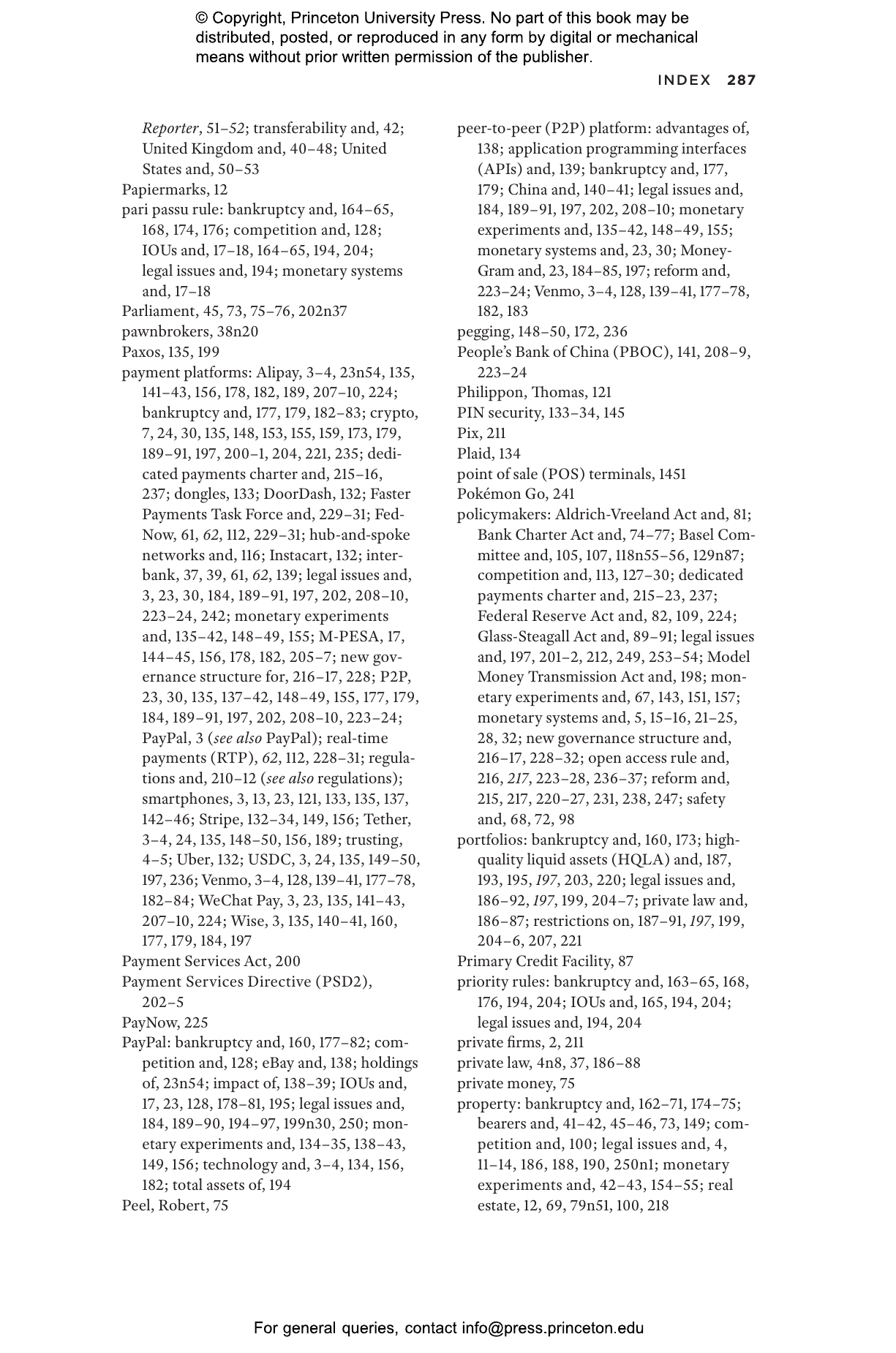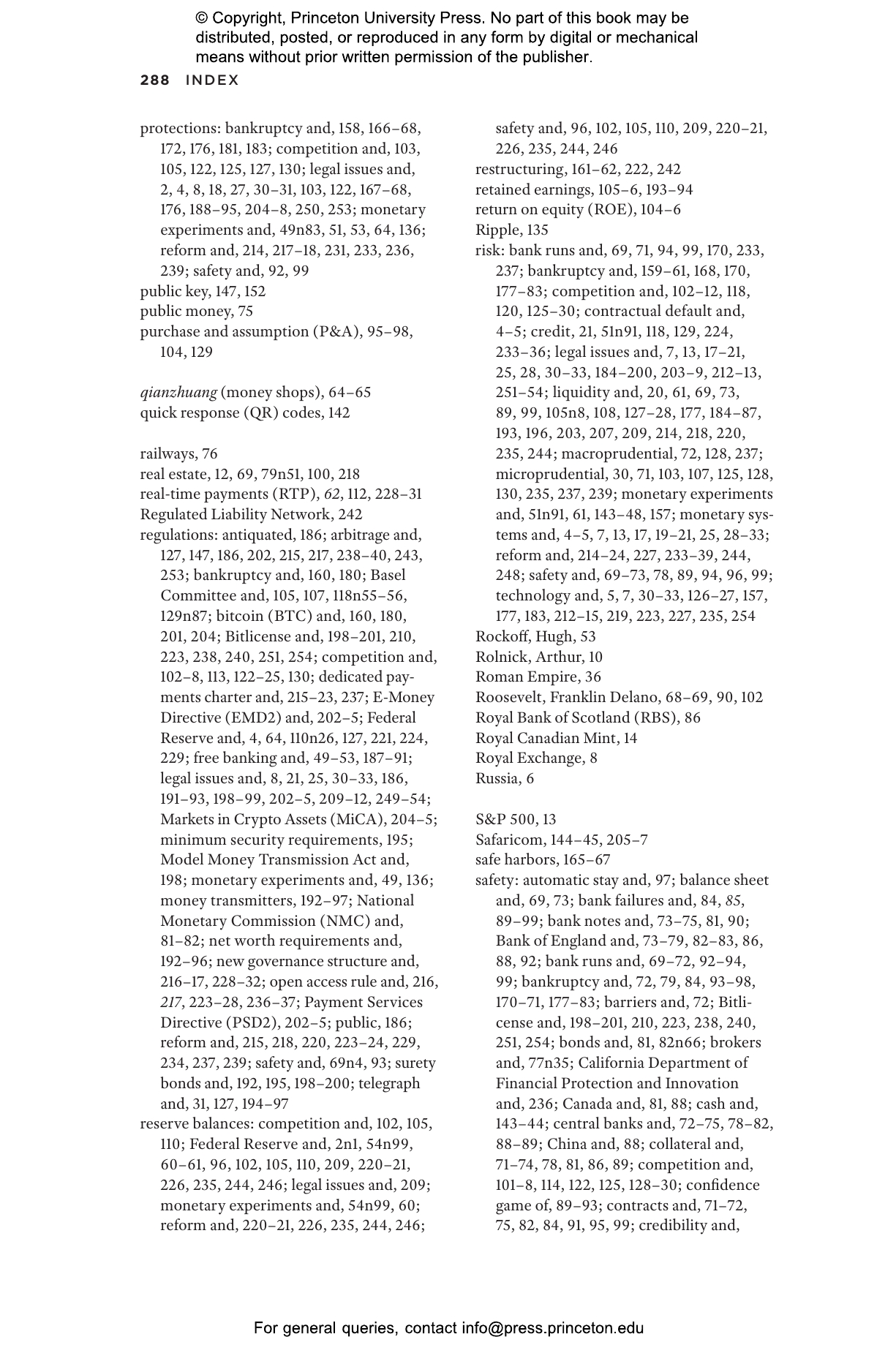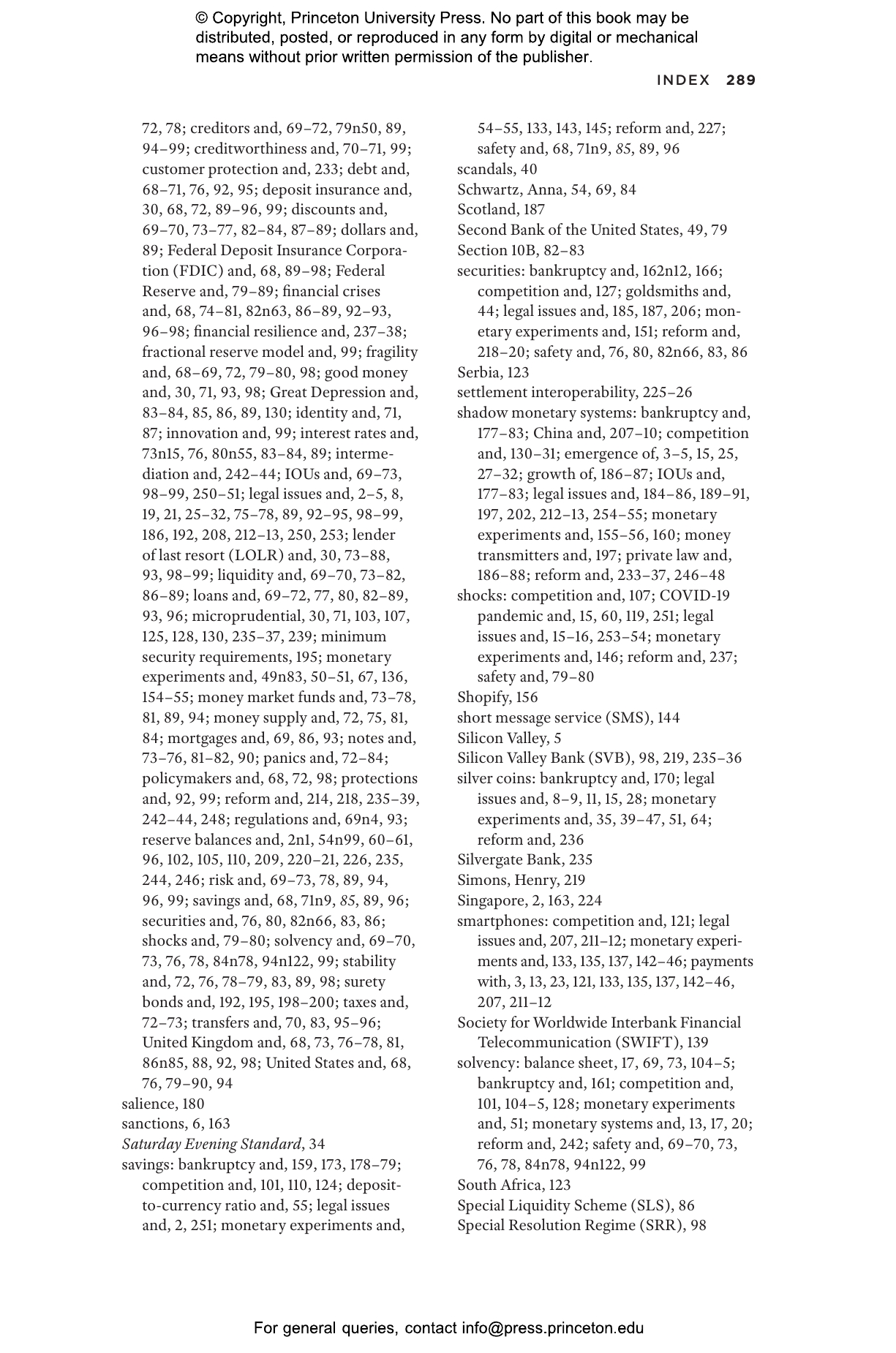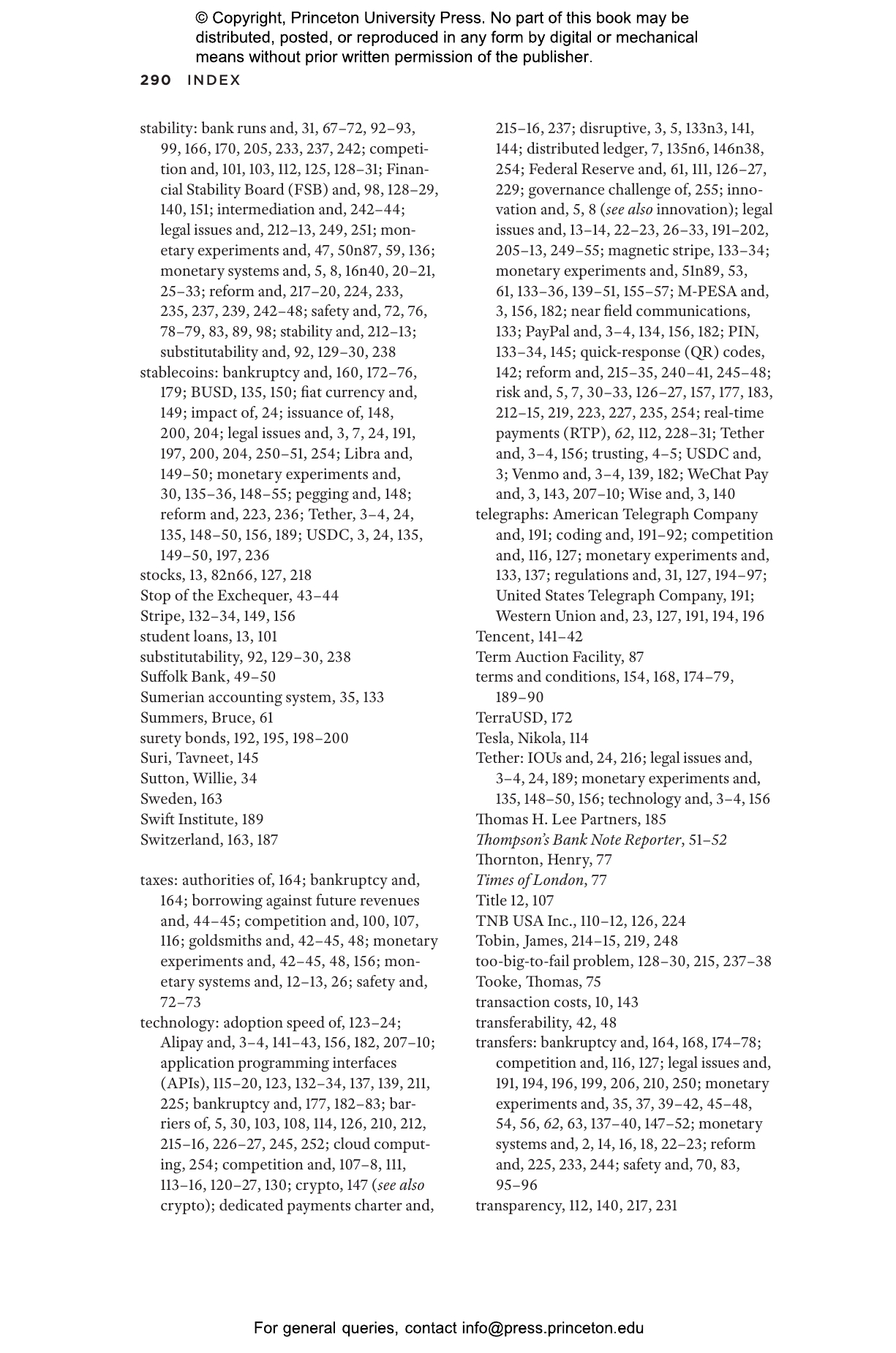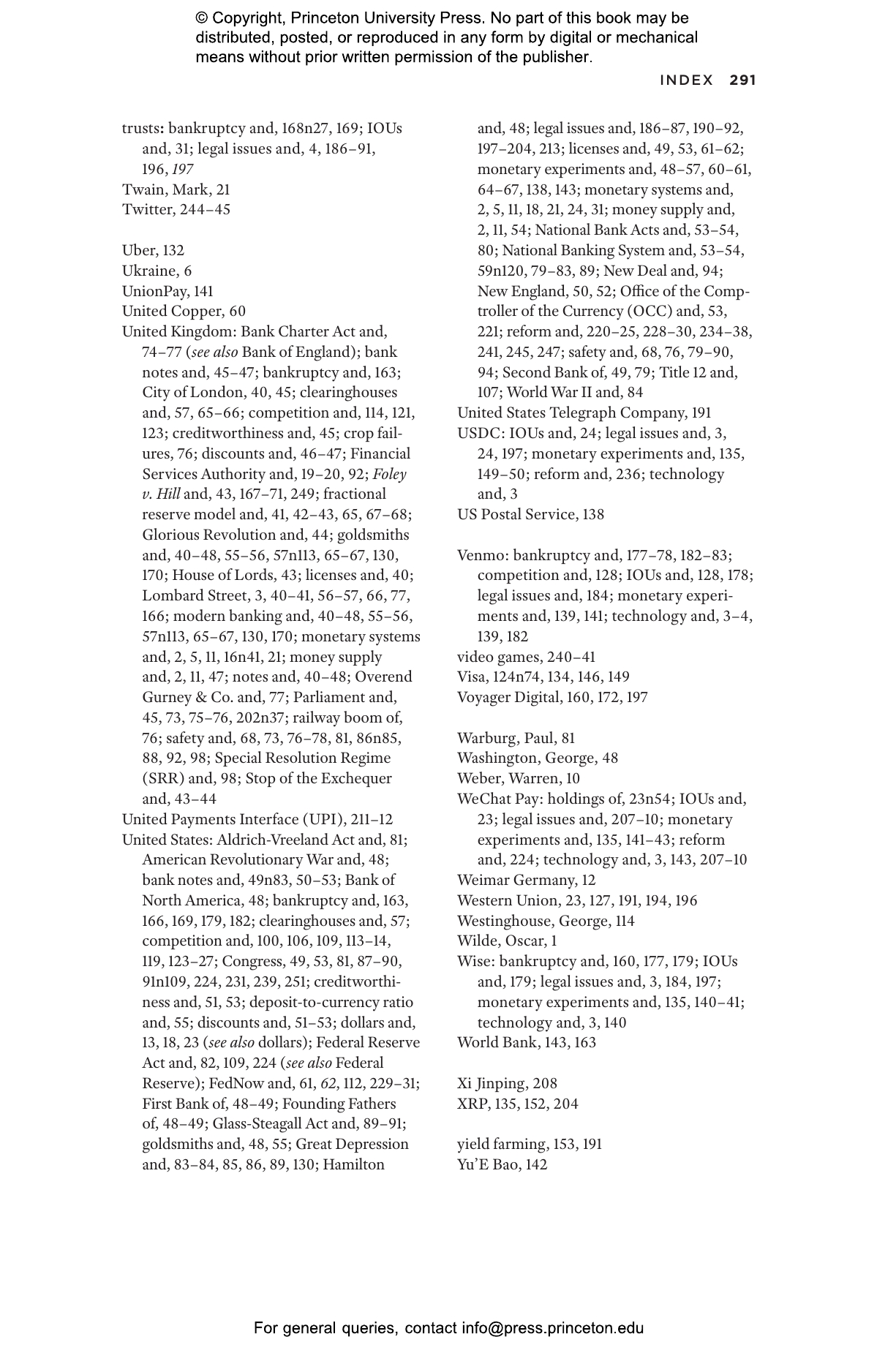A diverse and growing range of financial institutions and platforms—from PayPal and Venmo to WeChat, Alipay, and the brave new world of stablecoins—has harnessed new technology to disrupt the system of money and payments as we know it. Beyond Banks explains why this disruption holds out the promise of faster, cheaper, more convenient, and more secure payments, but also how it increasingly risks exposing consumers, businesses, and governments to the problem of bad money.
Dan Awrey traces the origins of our current bundled system of banking, money, and payments. He explains why the problem of bad money—the result of antiquated and inadequate laws and regulation that fail to establish credible commitments to hold, transfer, or return a customer’s money on demand—requires that policymakers fundamentally rethink their approach toward the design of the laws and institutions at the heart of this system. He presents ways to effectively unbundle banking from money and payments, ensure the credibility of monetary commitments, and promote the stability of this system. Awrey also envisions a more forward-looking role for policymakers in encouraging greater technological experimentation, competition, and innovation in the realm of payments.
Beyond Banks sheds critical light on the important but too often dysfunctional relationship among technology, regulation, and money, and lays the foundations for a safer, more nimble, and more inclusive system of money and payments.
Dan Awrey is professor of law at Cornell Law School. He is the coauthor of Principles of Financial Regulation and a founding managing editor of the Journal of Financial Regulation.
"Awrey reframes Gresham’s Law for the technological age. In its original formulation, Gresham’s Law notes that good and bad money cannot circulate together. . . . For now, non-bank consumer money remains a small part of the picture. But as it proliferates, risks will emerge. To stay ahead of them, Dan Awrey’s book, Beyond Banks, is worth the read."—Marc Rubinstein, Net Interest
"This recommended book . . . aptly contributes to the conversation about revising the policies that financial institutions and services must follow."—Library Journal
“The first readers of Awrey’s masterwork should include the top economic policymakers in Congress, the White House, and the Federal Reserve. This is the go-to source for a commonsense understanding of our system of money and payments, how it has fallen behind, and what to do about that. The scholarship and clarity are outstanding!”—Darrell Duffie, Stanford Graduate School of Business
“If you are wondering why the United States—the largest and most advanced economy in the world—lags far behind many advanced as well as developing economies when it comes to money and payments, read this book. And if you weren’t wondering about that, then all the more reason to read this book. It is a lucid analysis of where we are and how we got here and a blueprint for the future—a thoughtful set of policies for achieving consumer protection, financial stability, competition, and innovation in our financial system.”—Timothy Massad, Kennedy School of Government at Harvard University
“In this superb and pathbreaking book, Dan Awrey chronicles how new payments providers like Venmo and stablecoins are overtaking traditional banks in terms of speed, ease of use, and cost savings, but without the regulatory safeguards necessary to ensure that these payment innovations will offer sound money throughout the business cycle. Beyond Banks presents a clear-eyed and practical reform agenda that would bring new payment systems squarely within the regulatory perimeter and subject to specialized insolvency procedures. Legislators and regulators ignore these proposals at their (and our) peril.”—Howell E. Jackson, Harvard Law School
“There is quite possibly no legal academic who knows more about money and banking than Dan Awrey. The fact that he writes in this book a brilliant account of the technology of money—and the systems in which it operates—makes it as much a guide for the future as it is a lens for understanding the past. A must-read.”—Chris Brummer, Georgetown University Law Center


